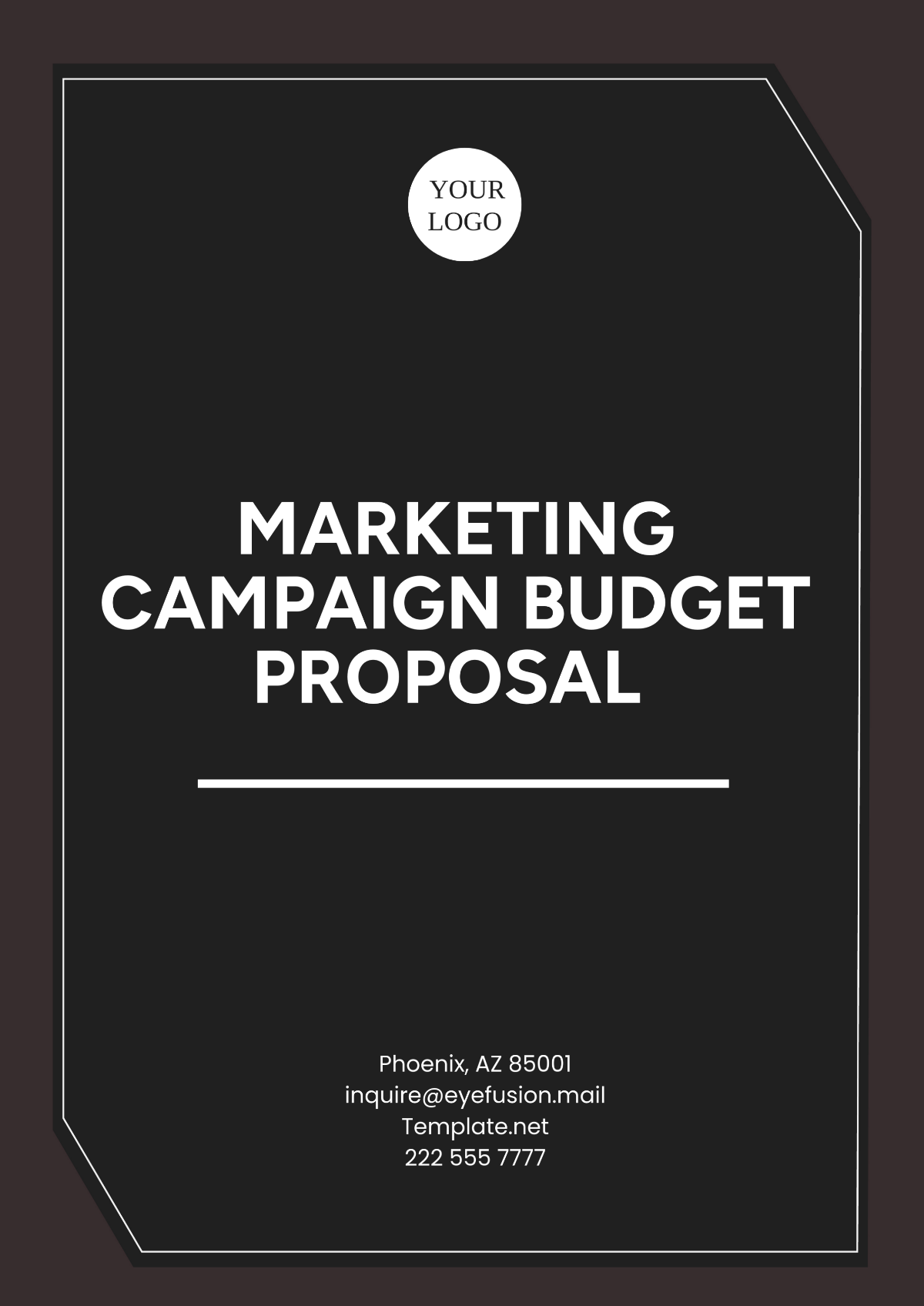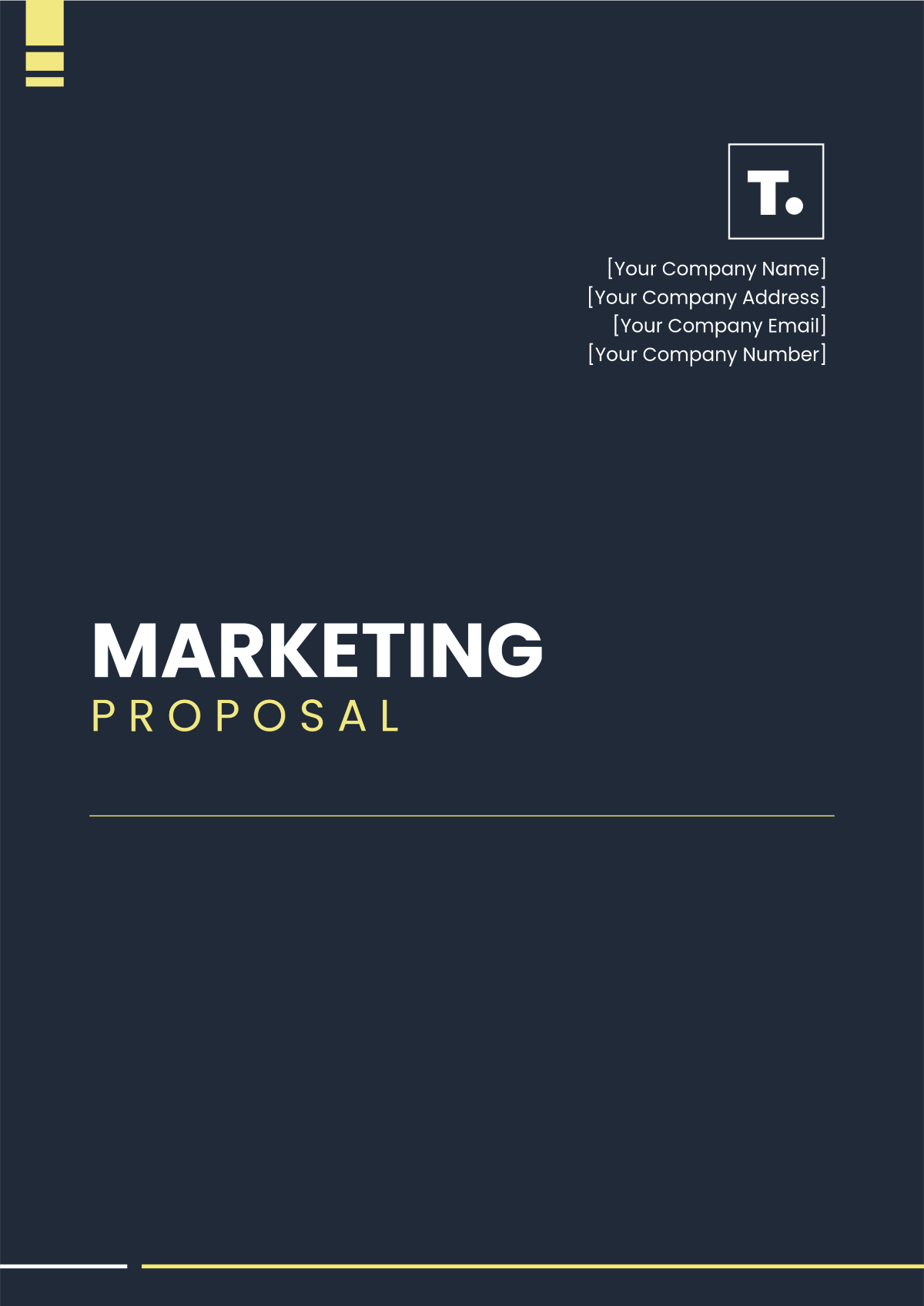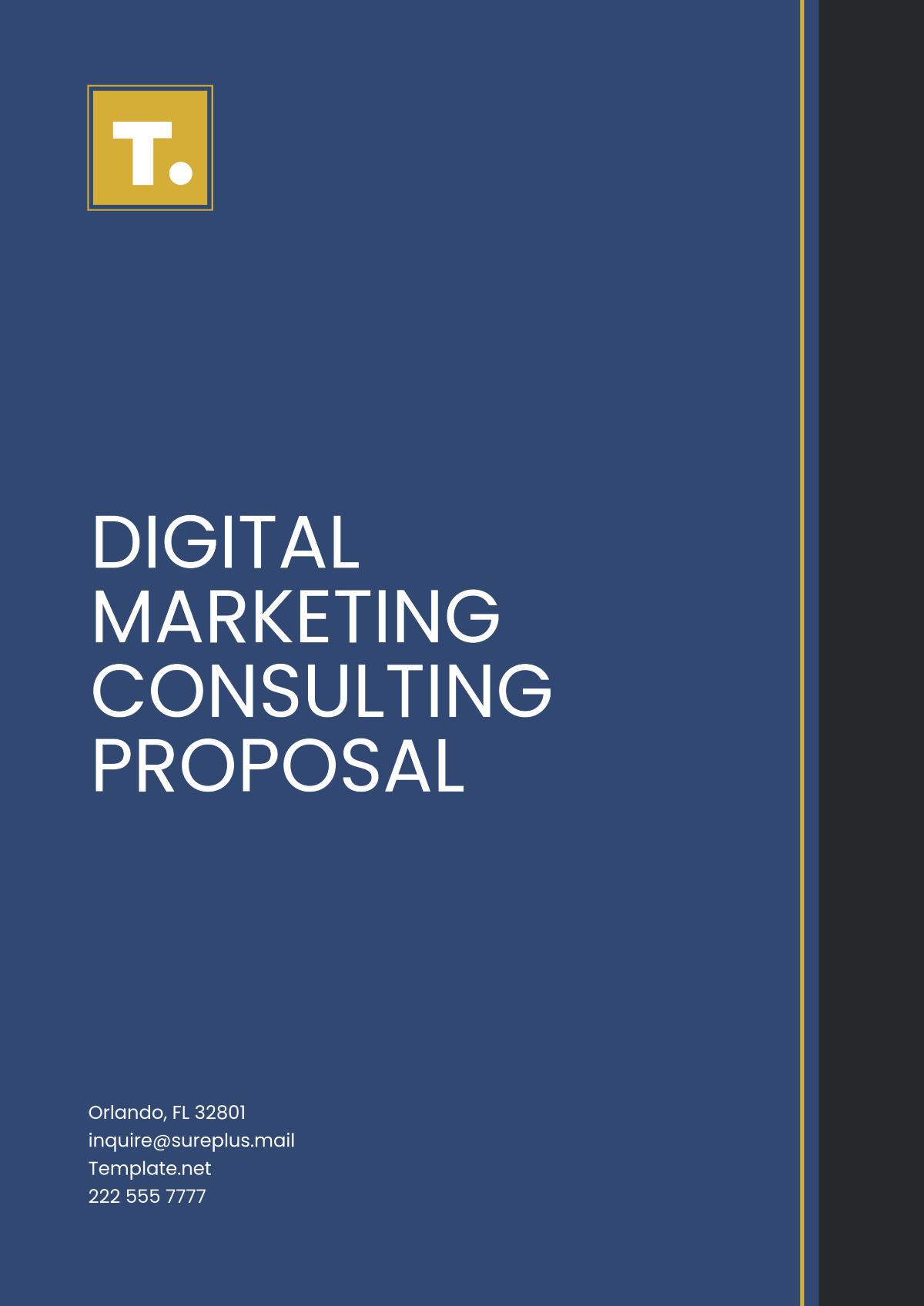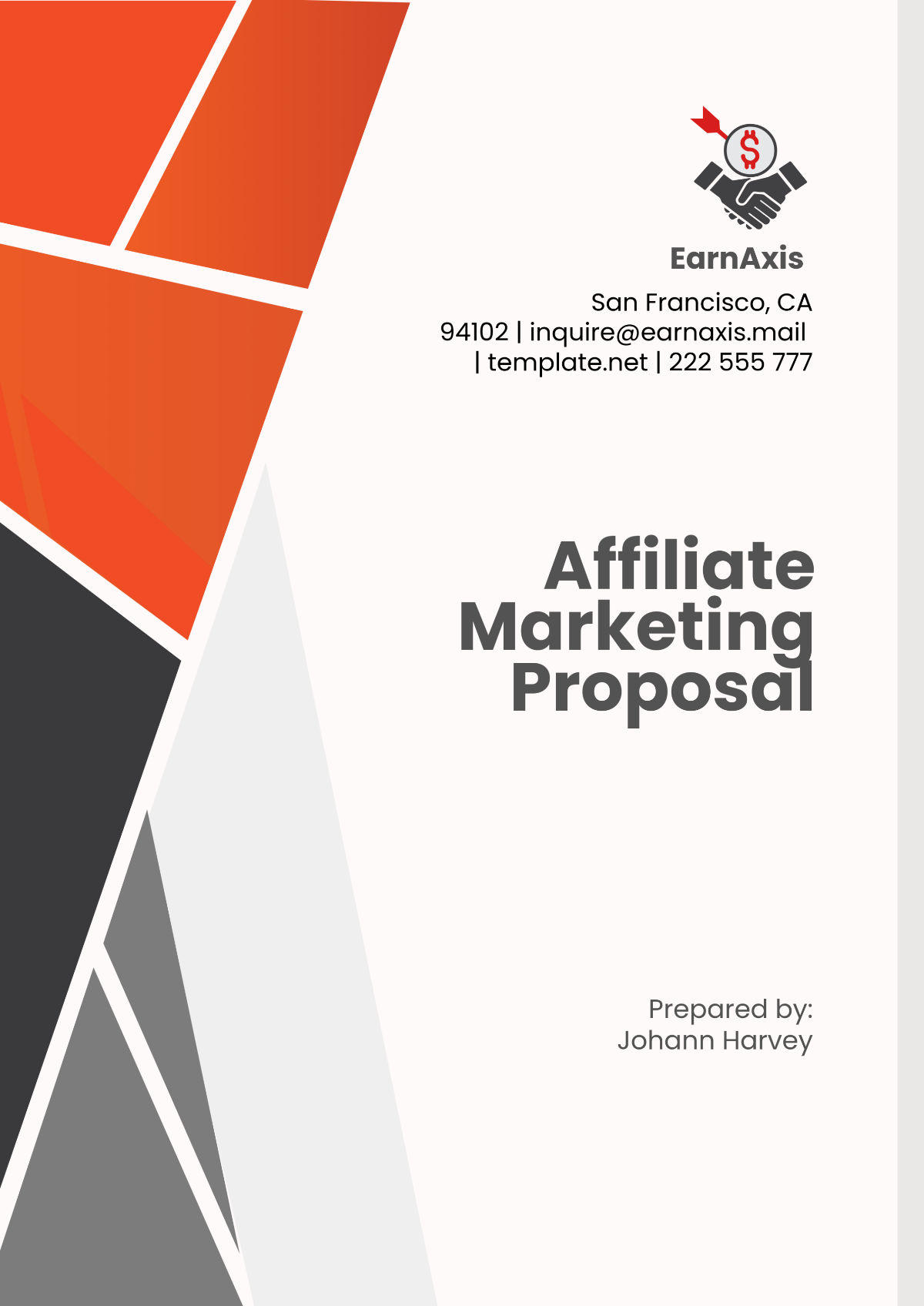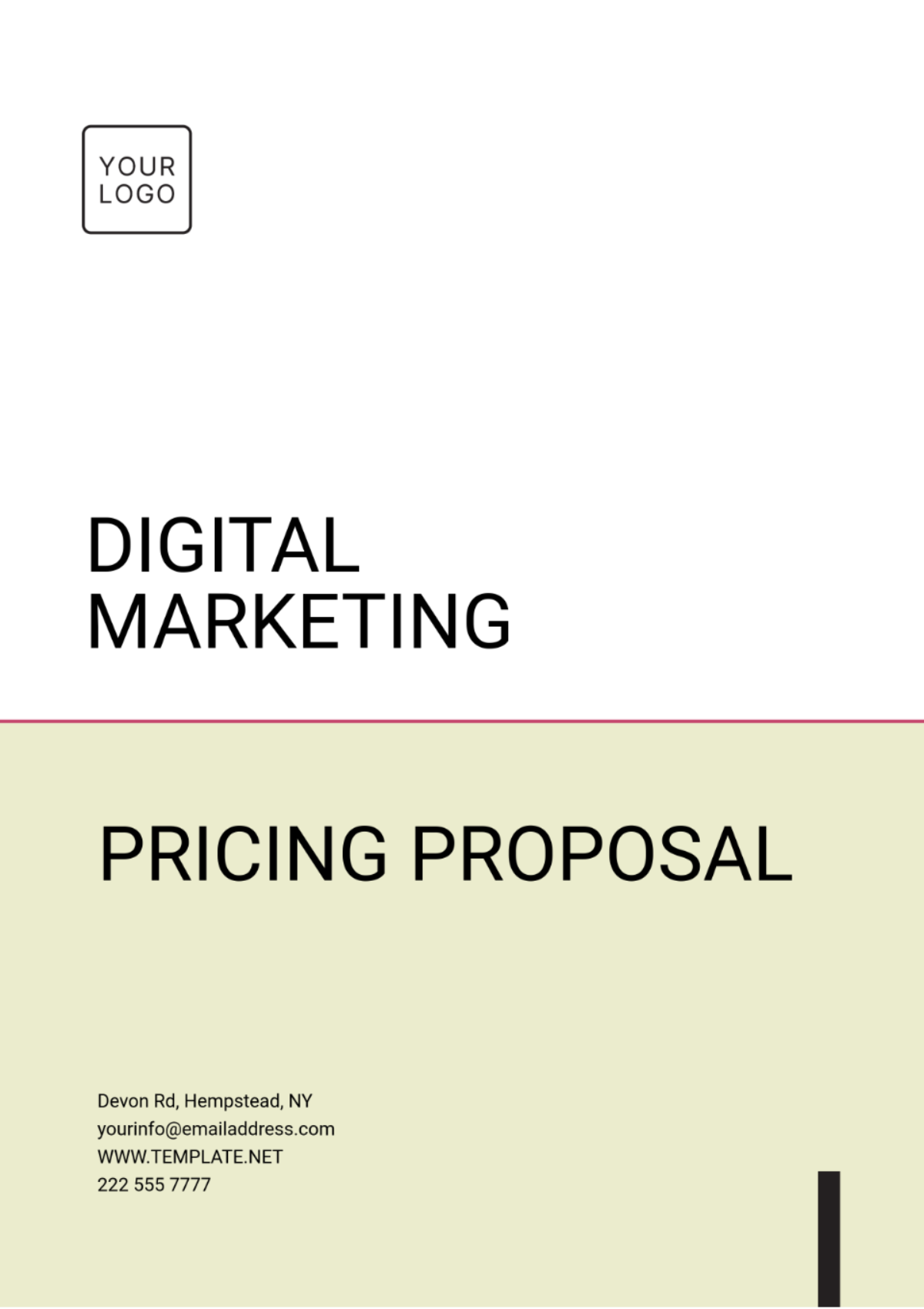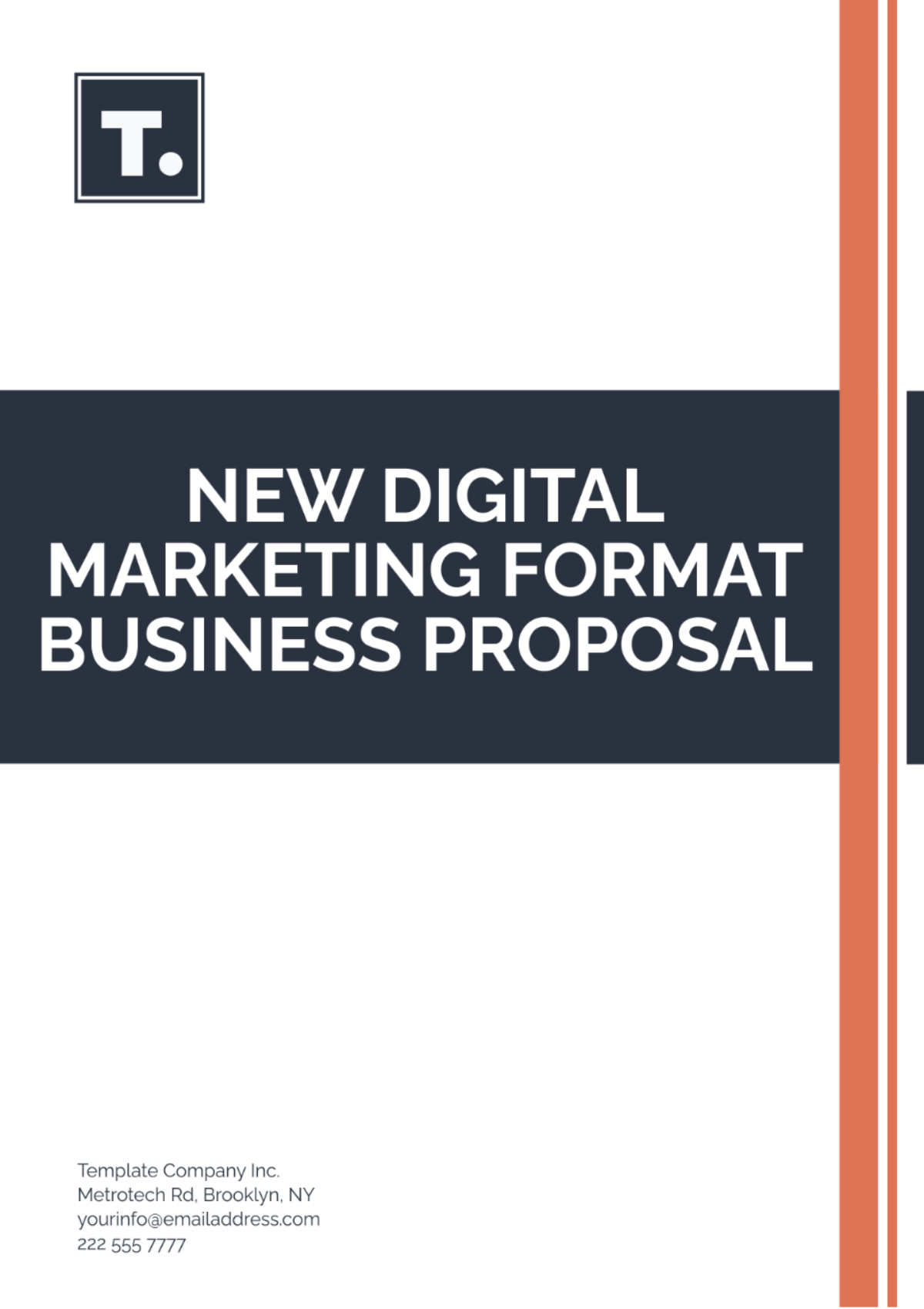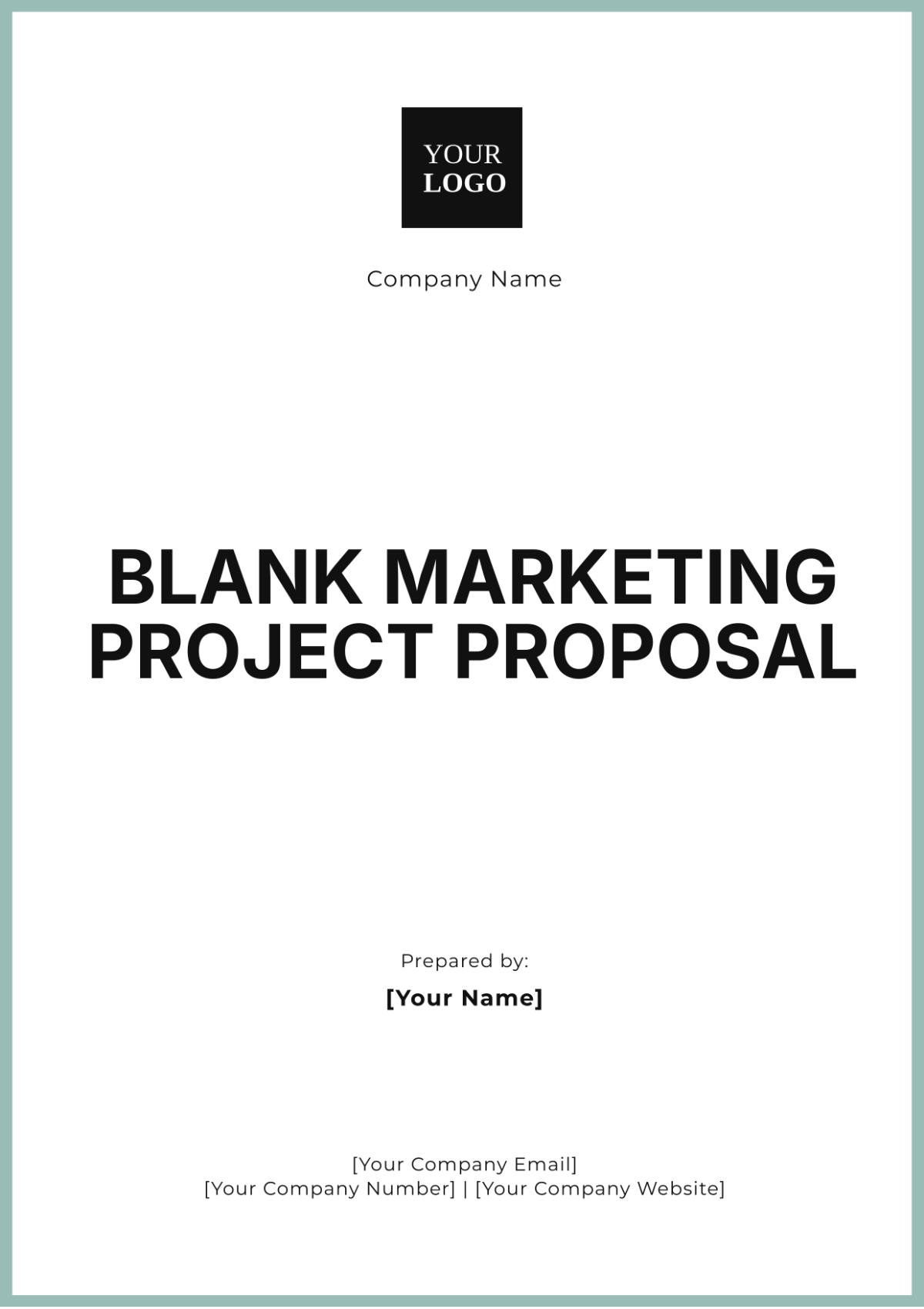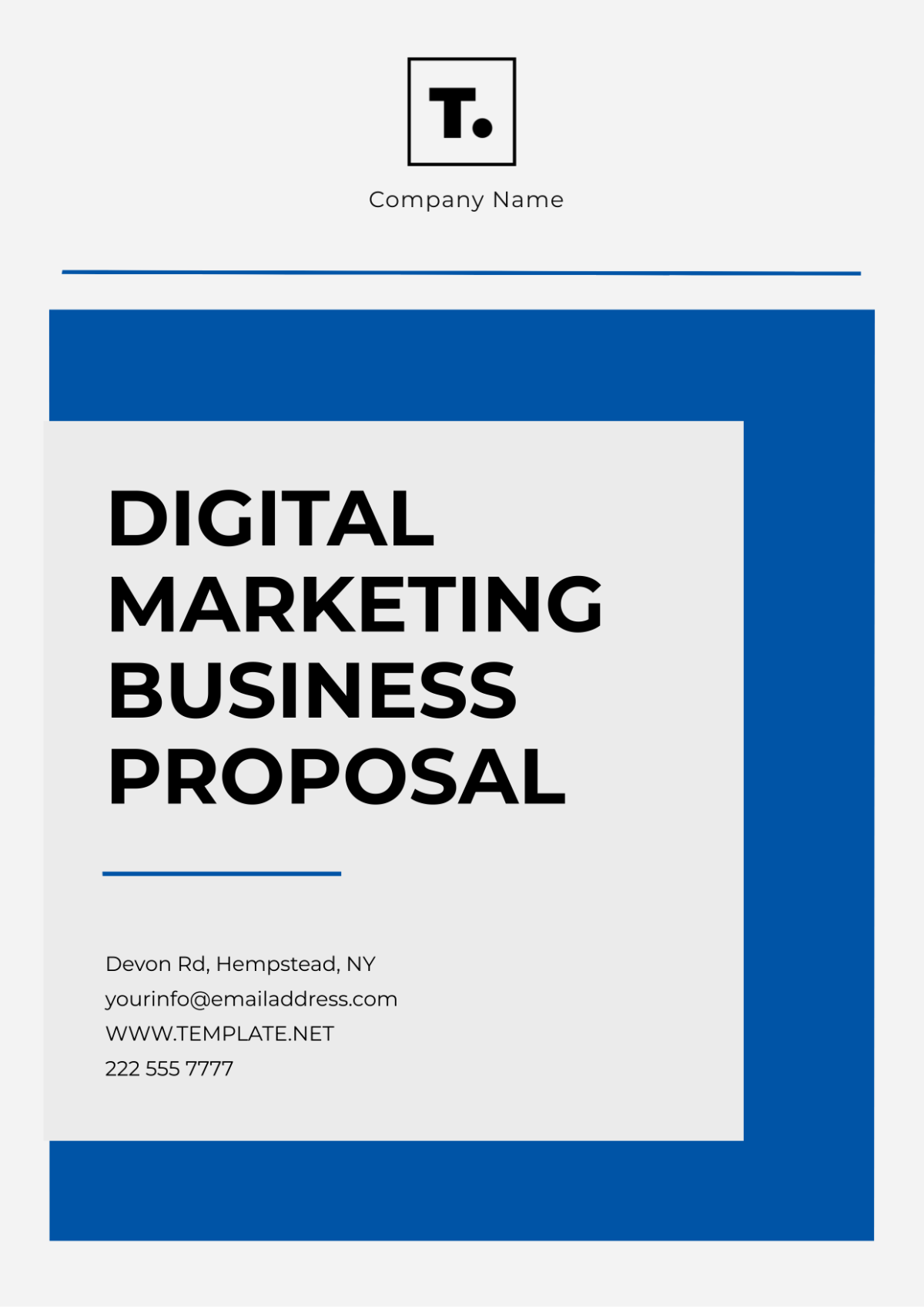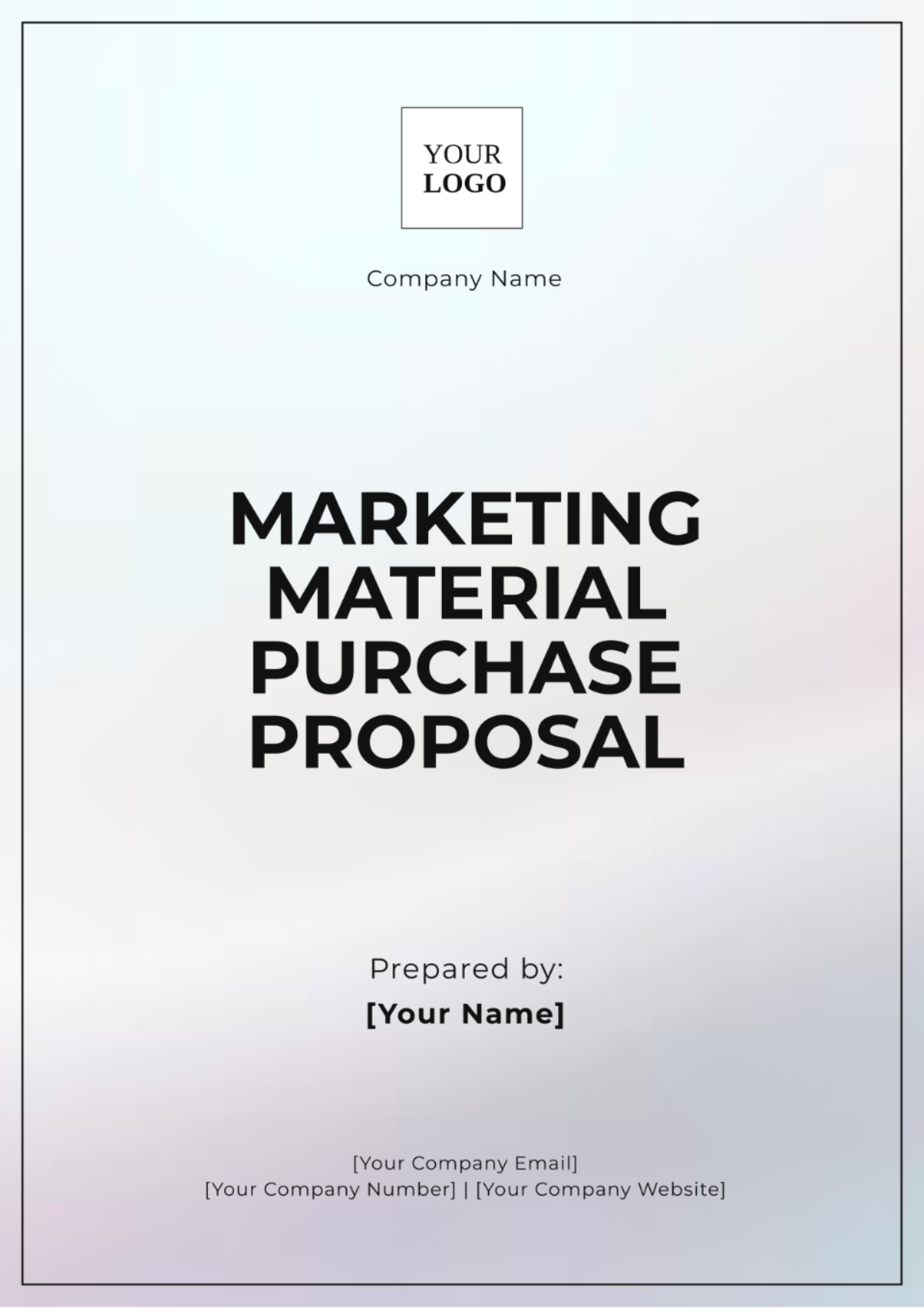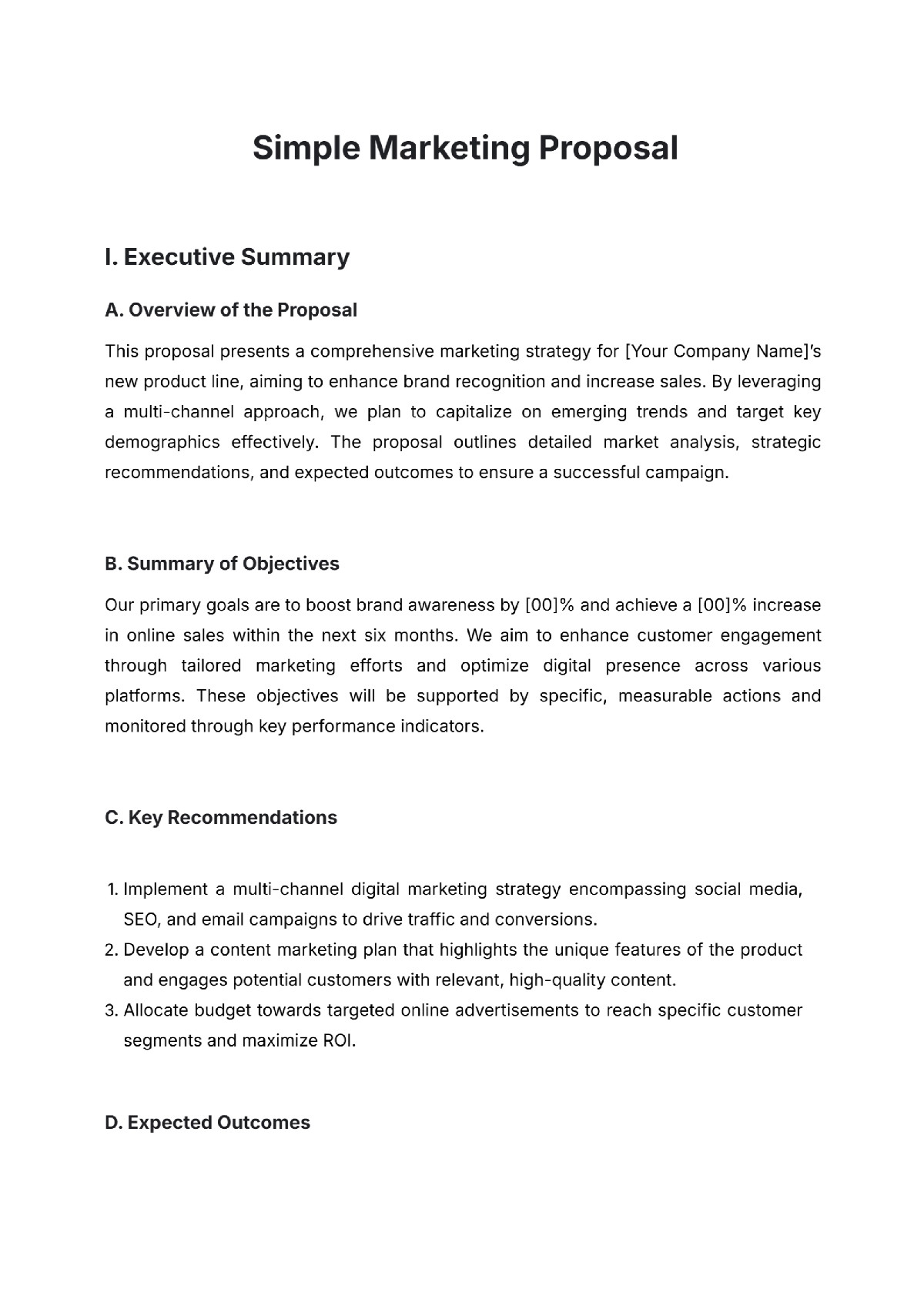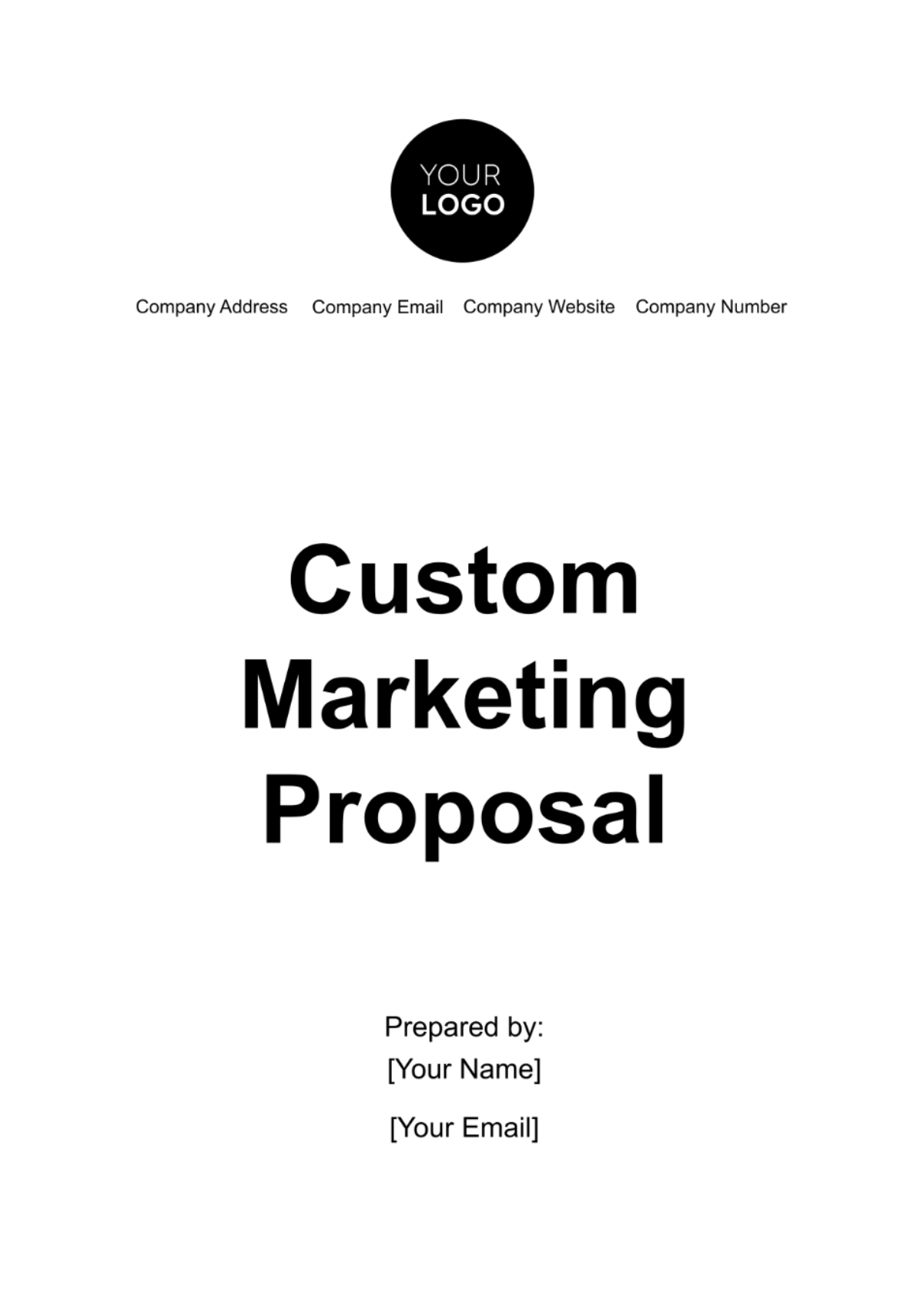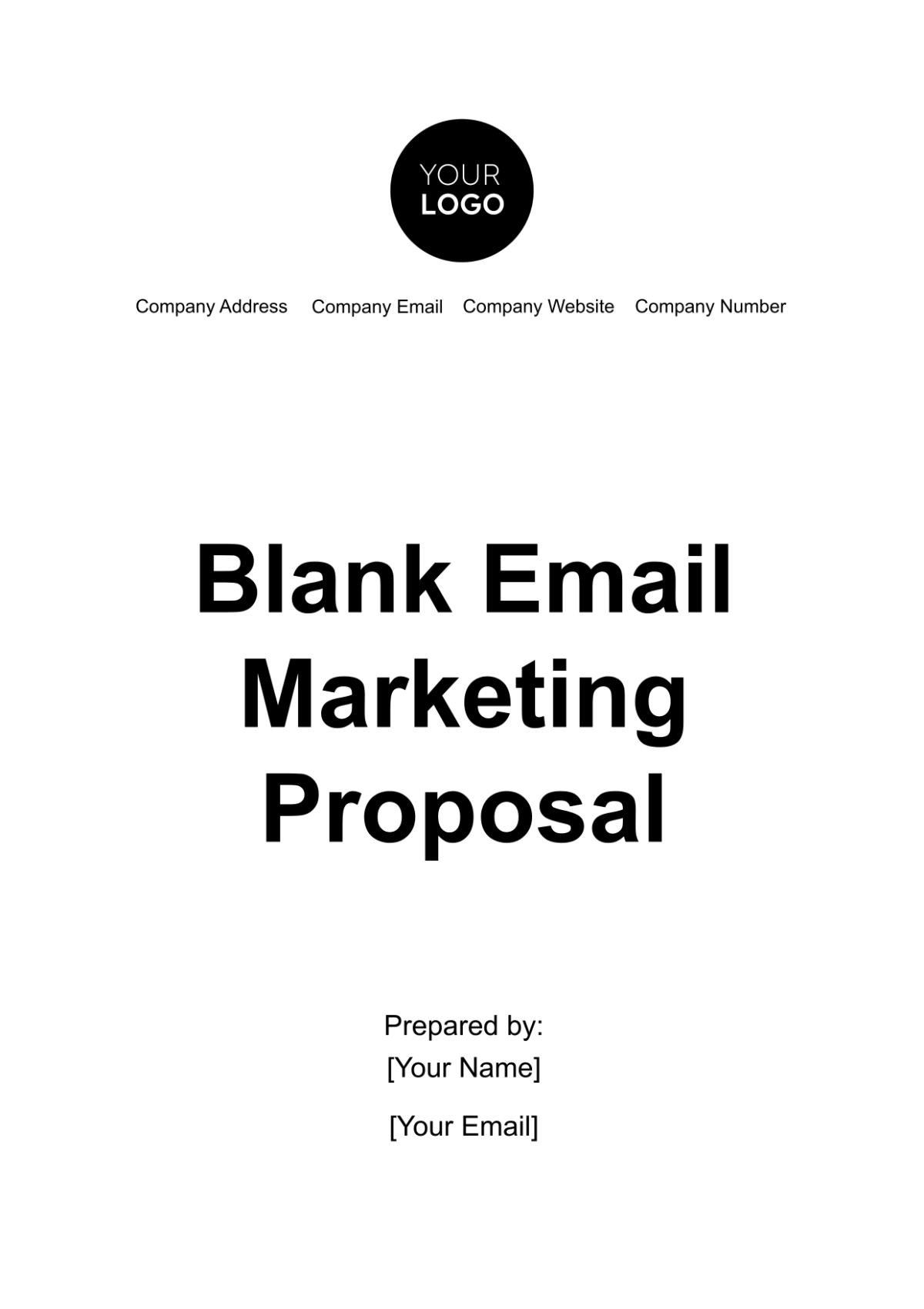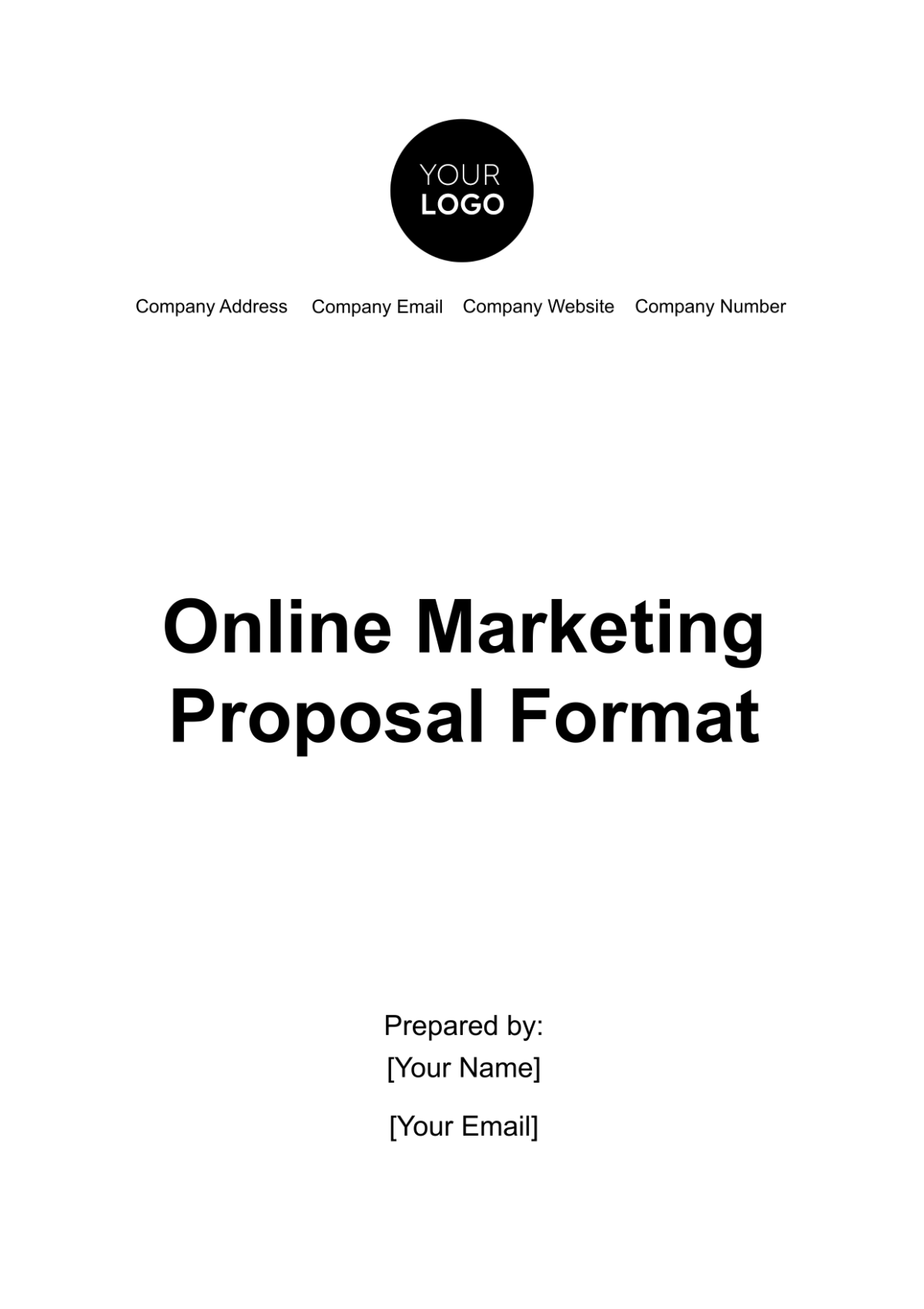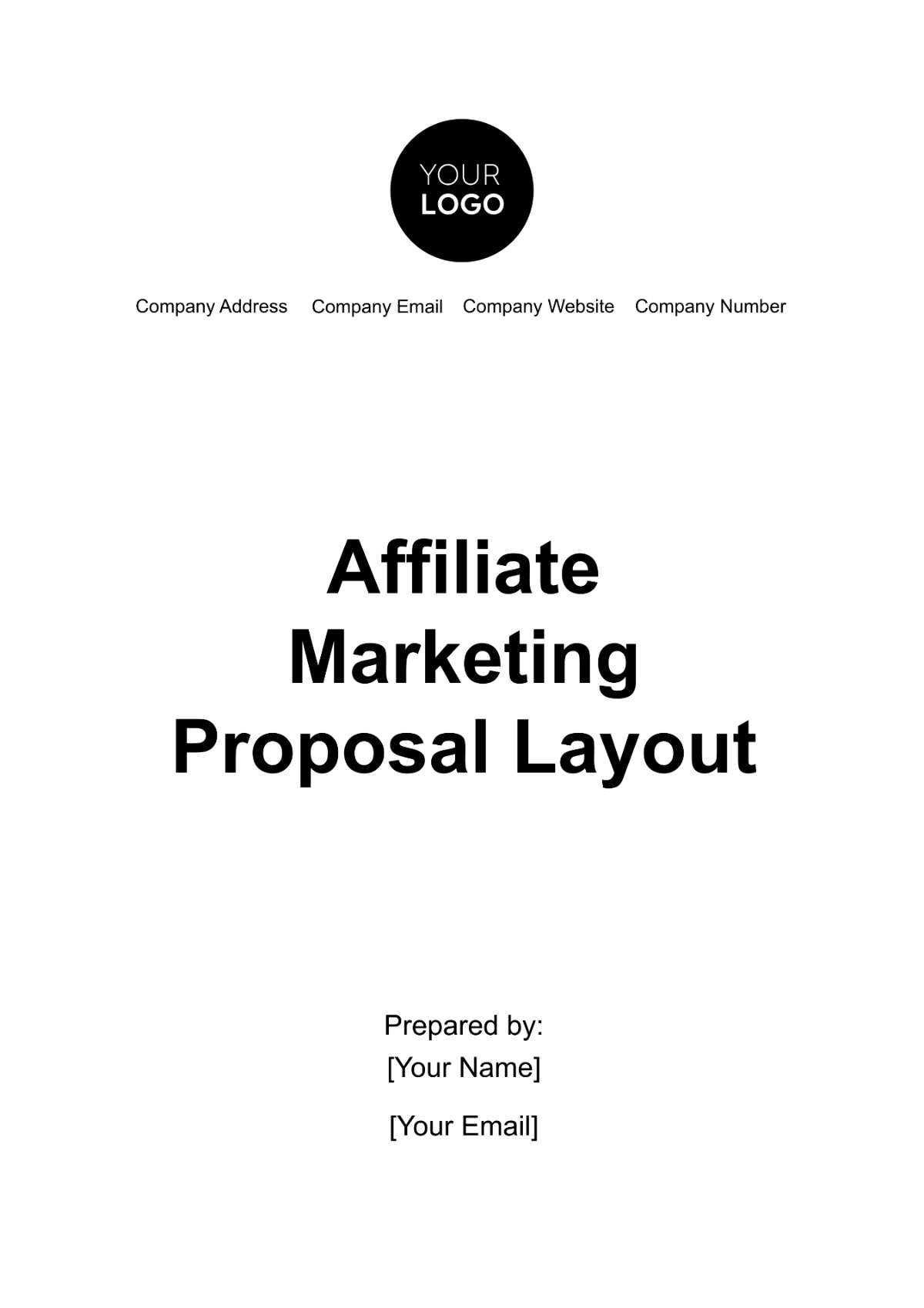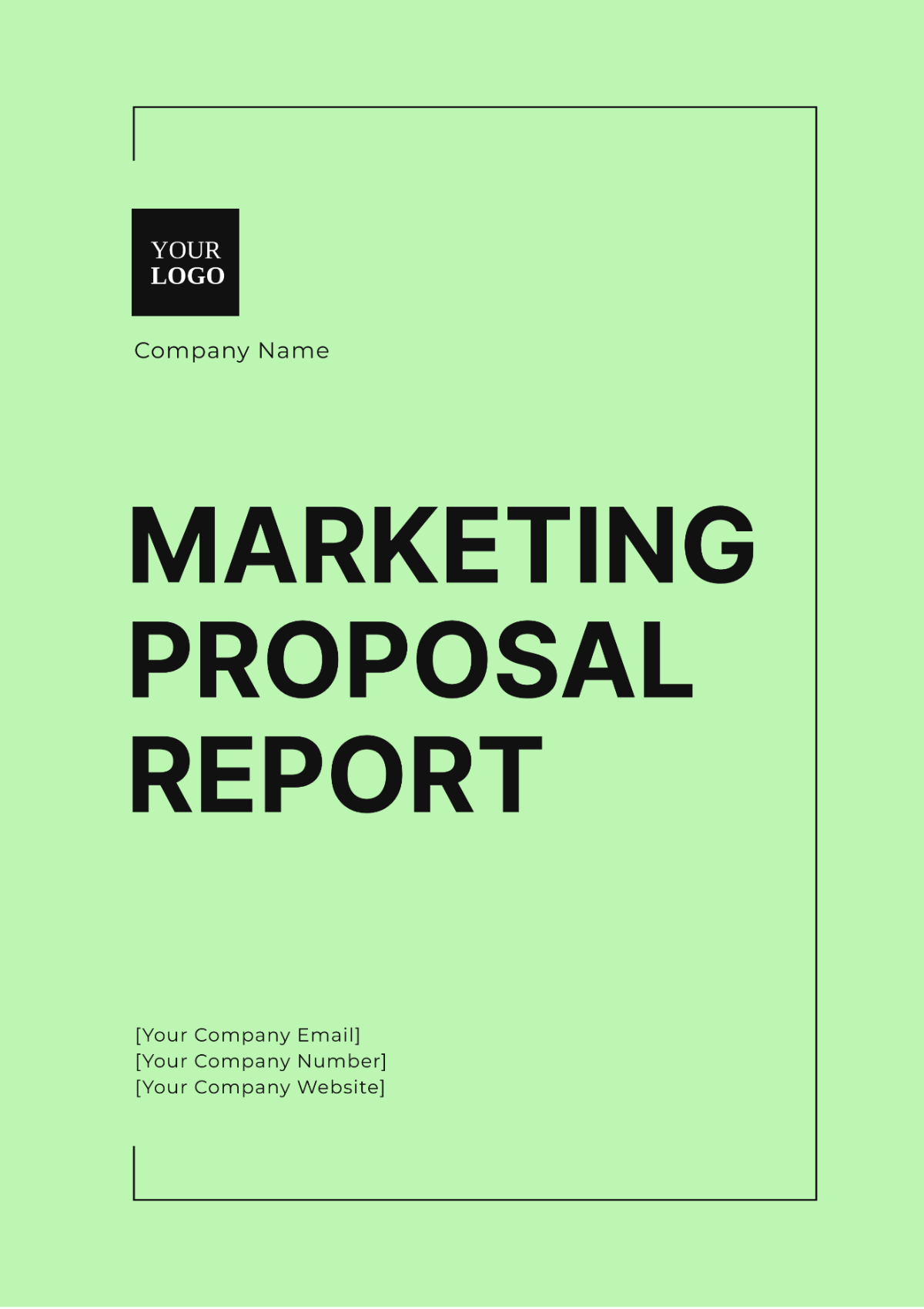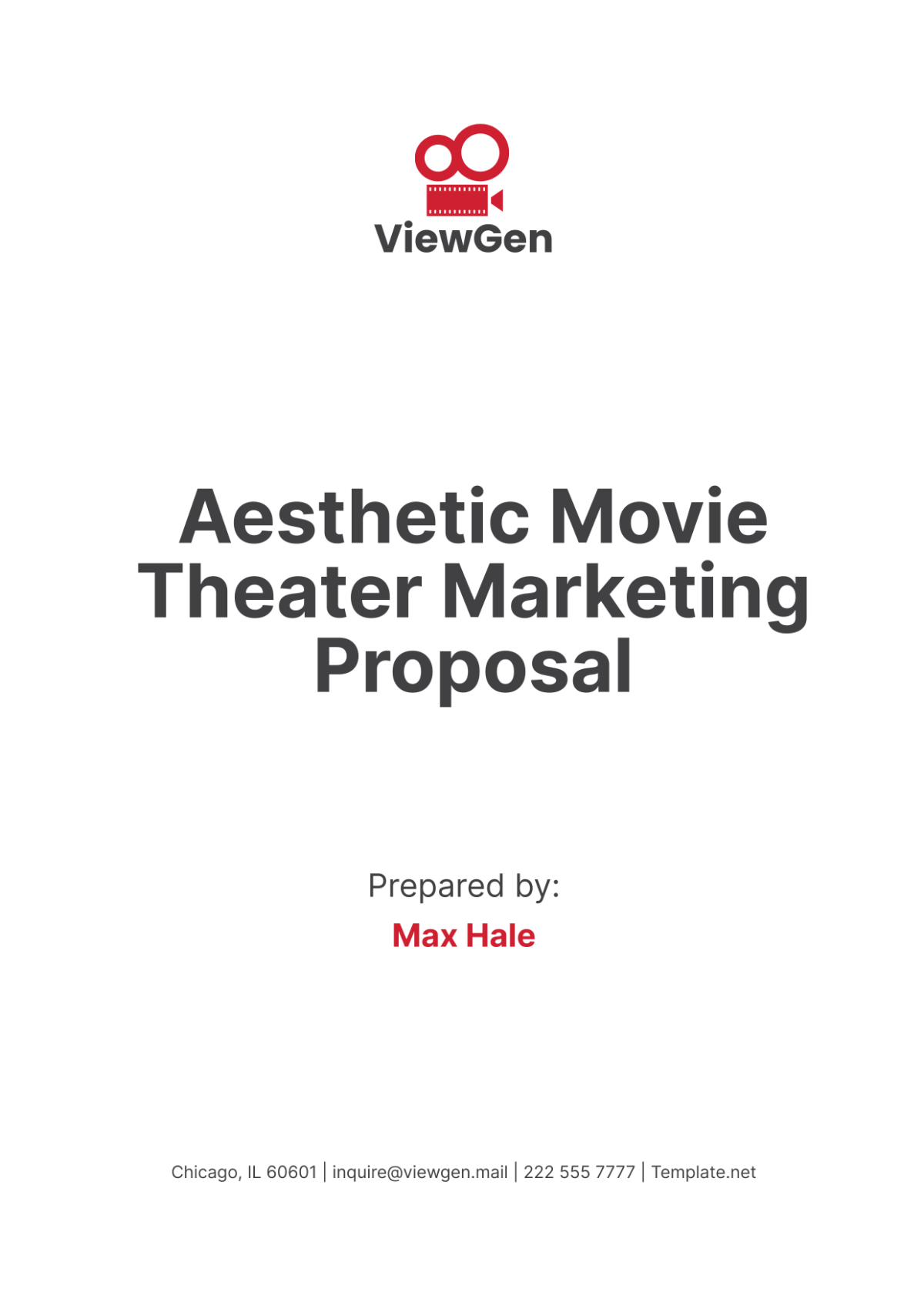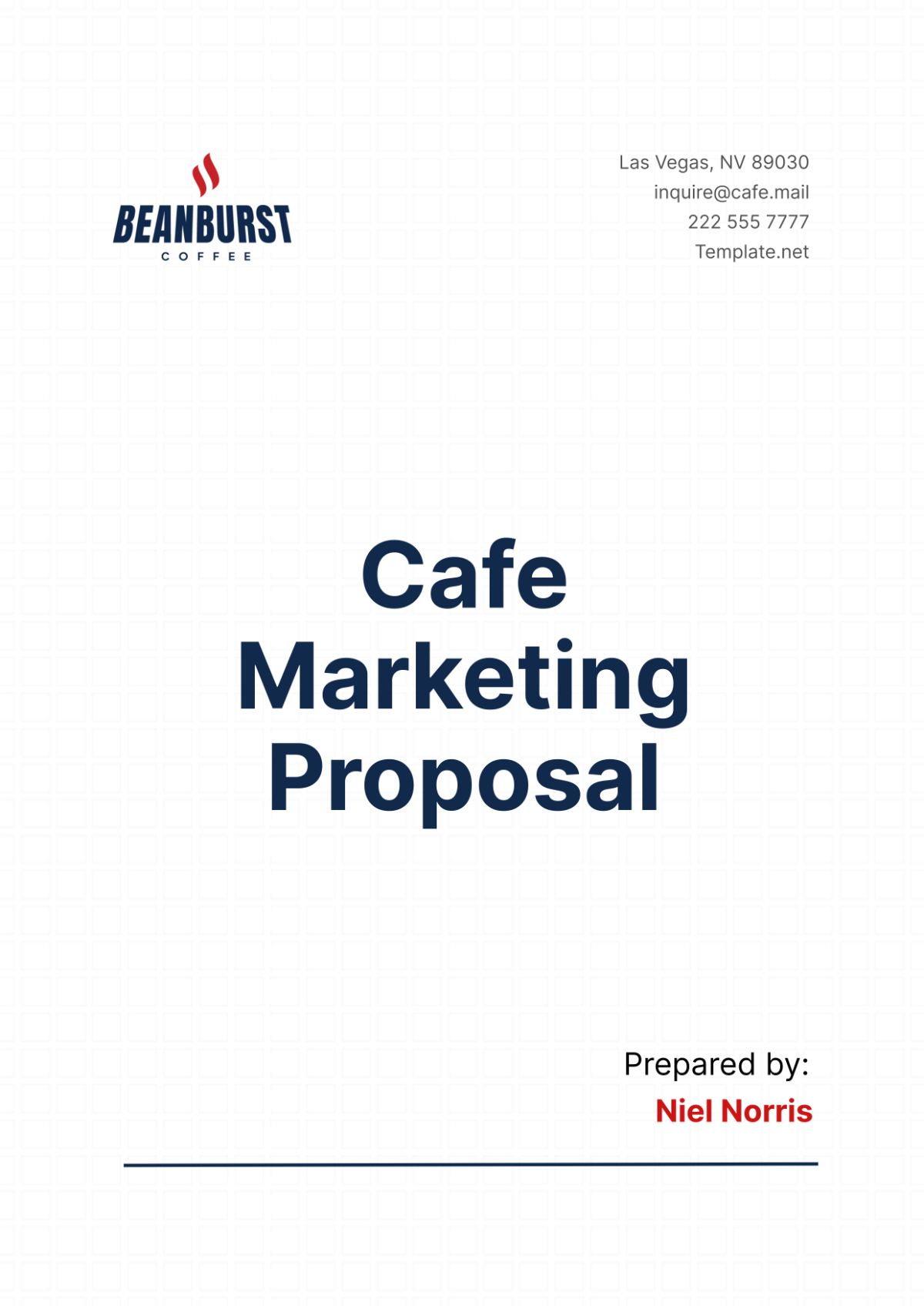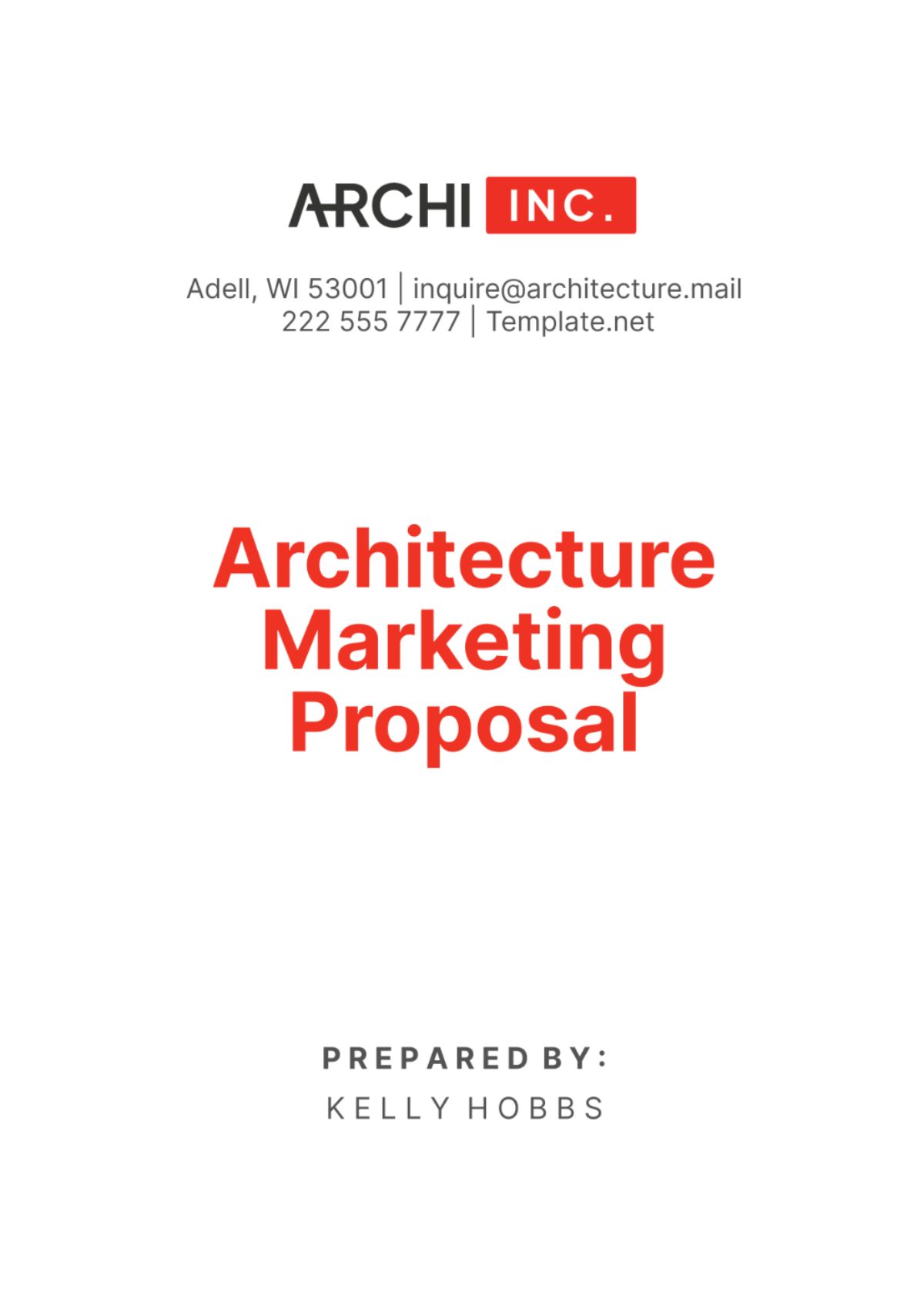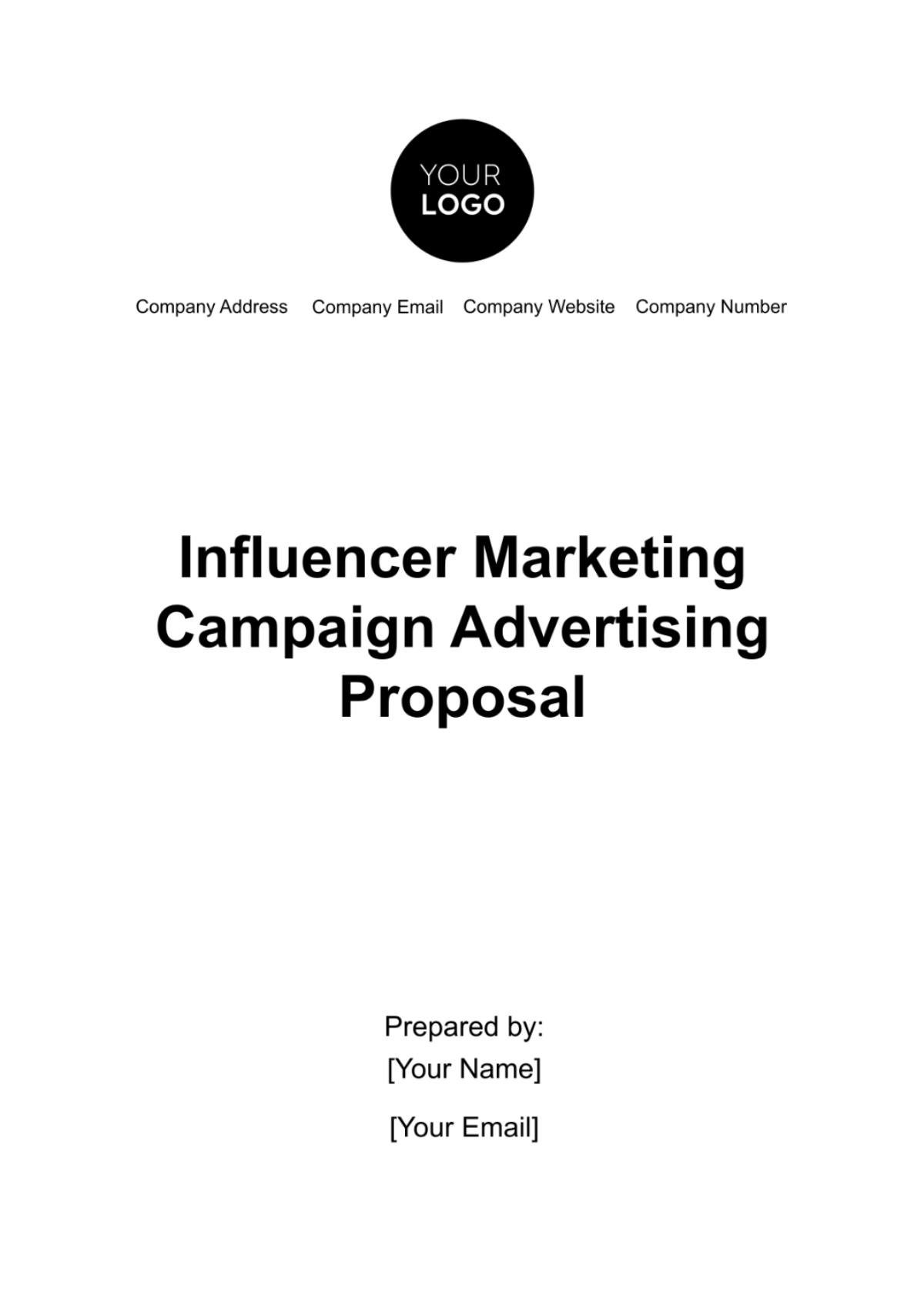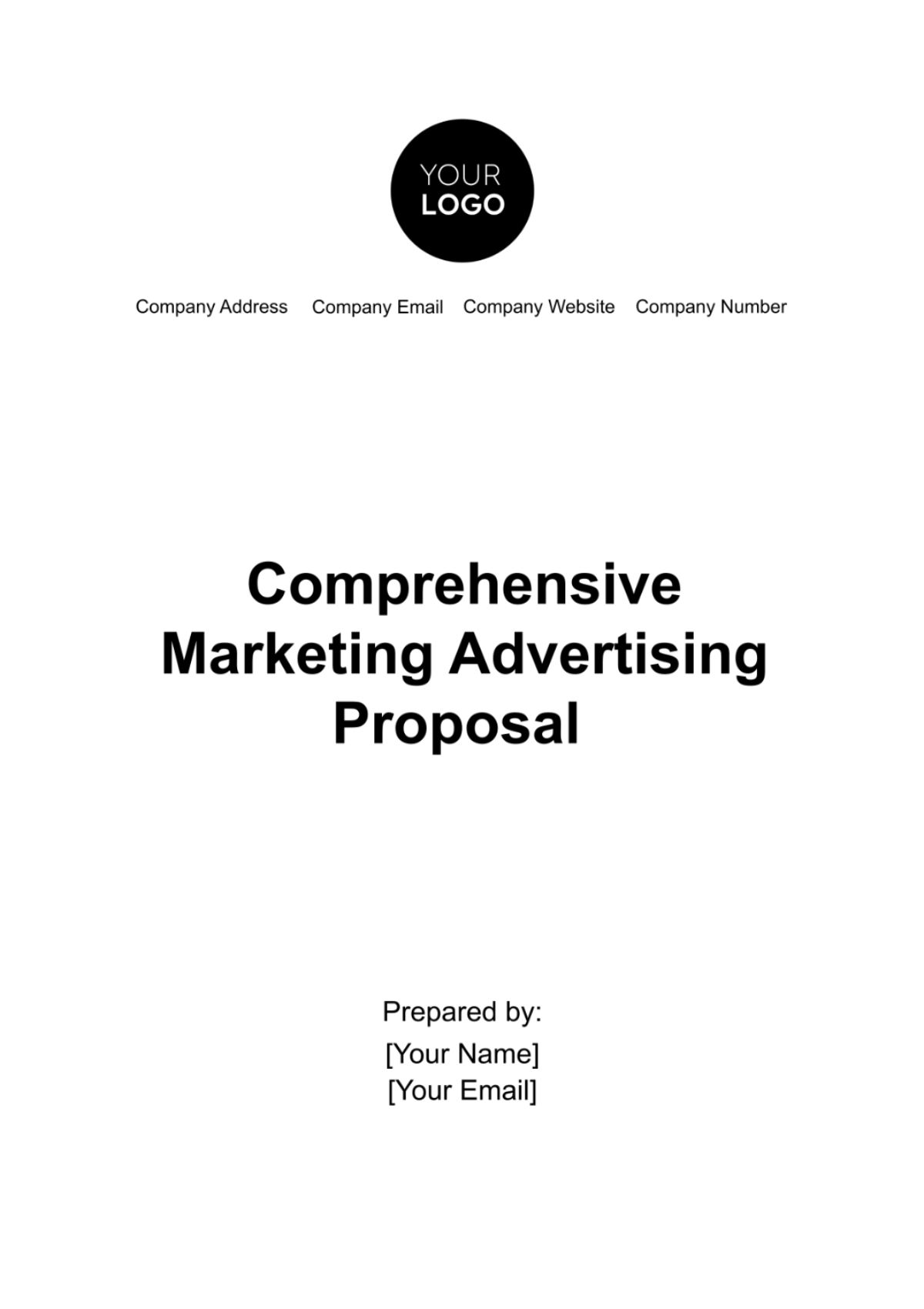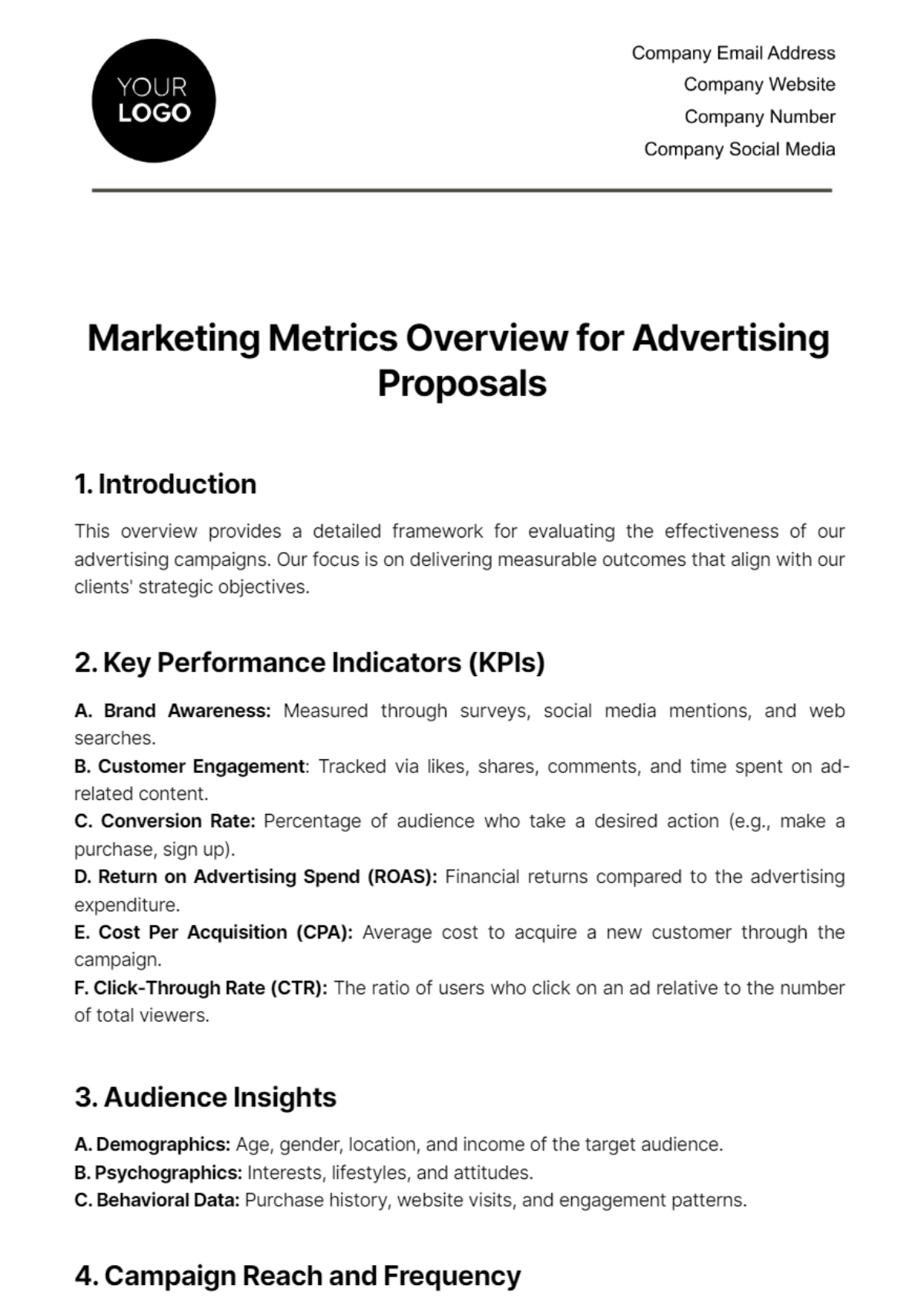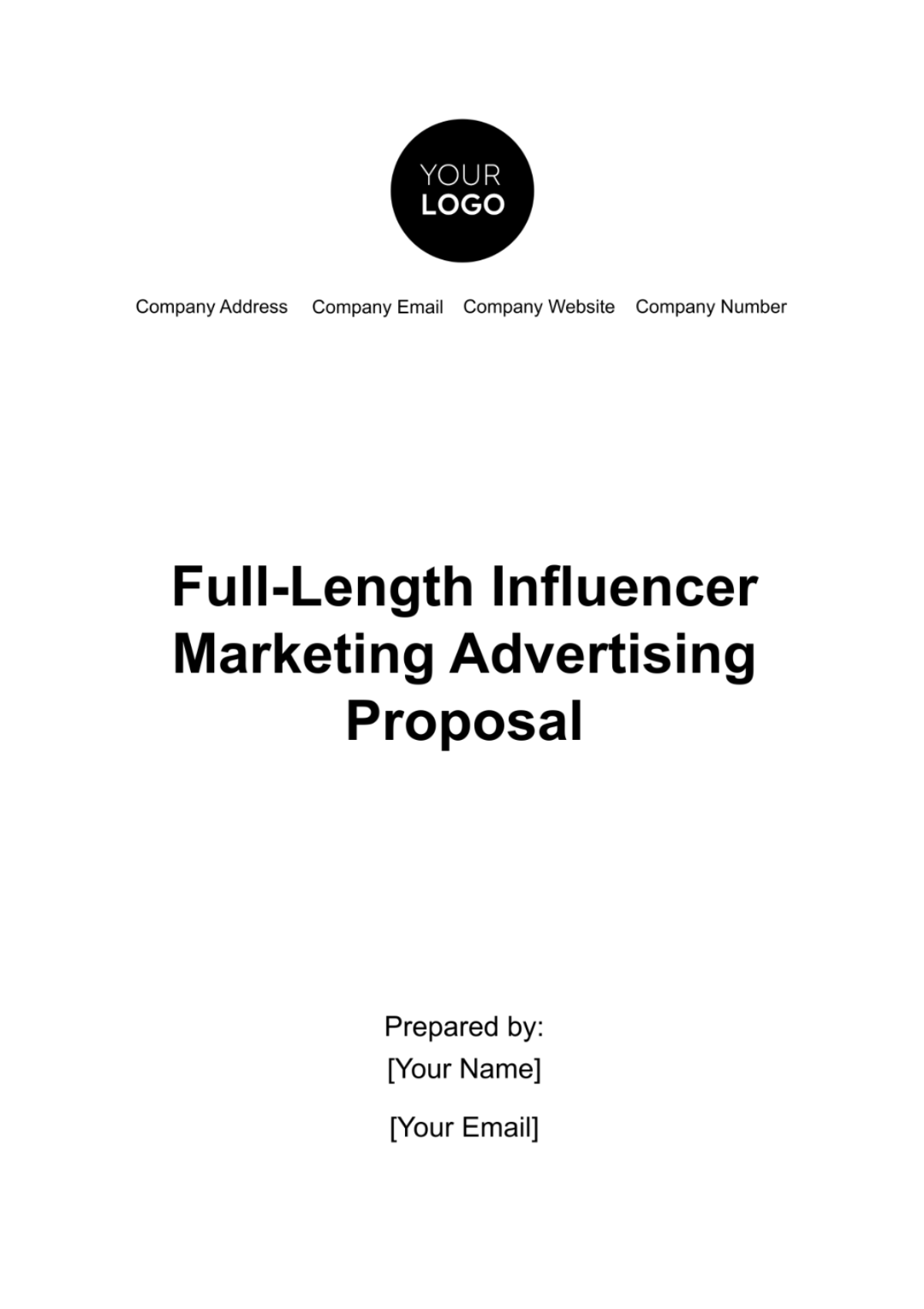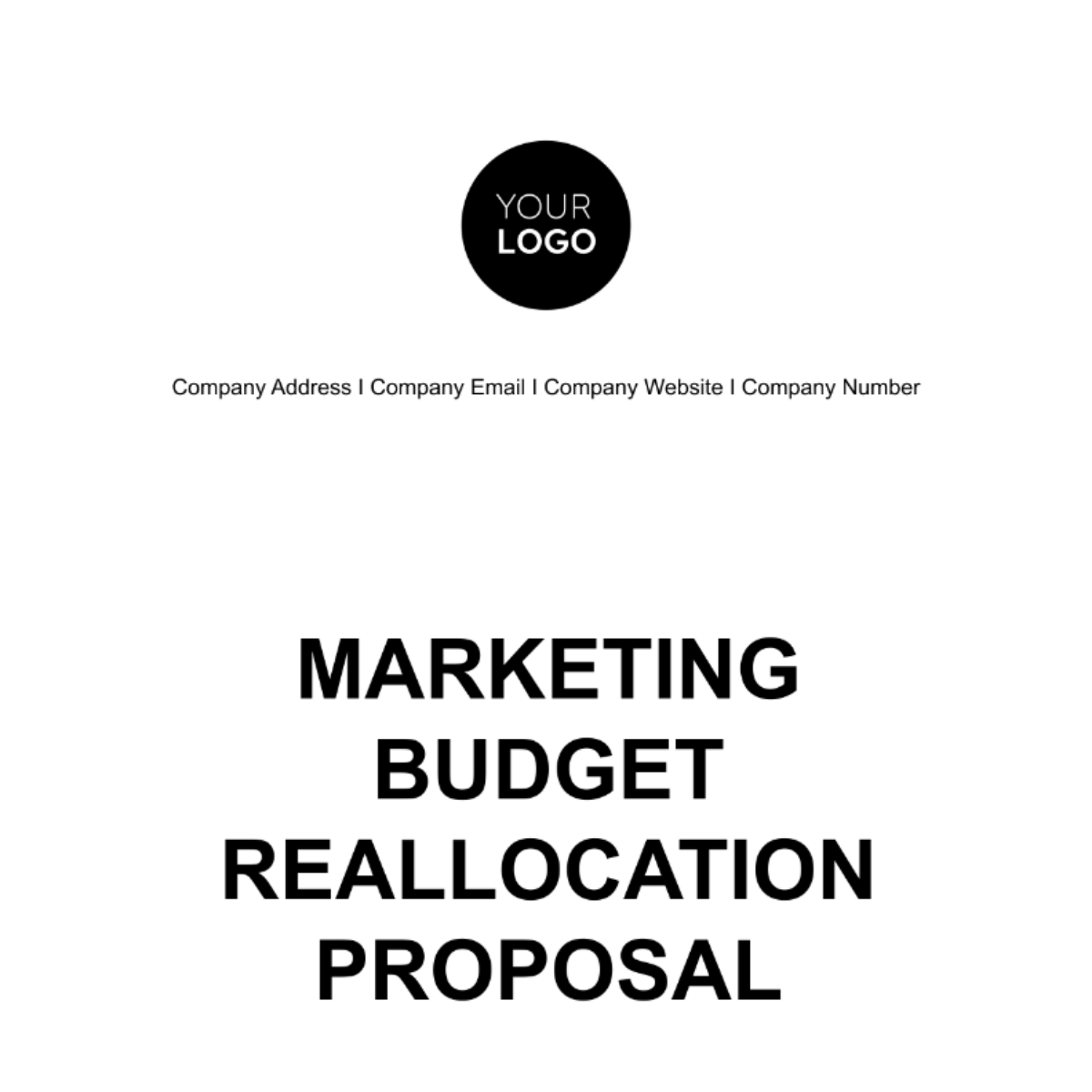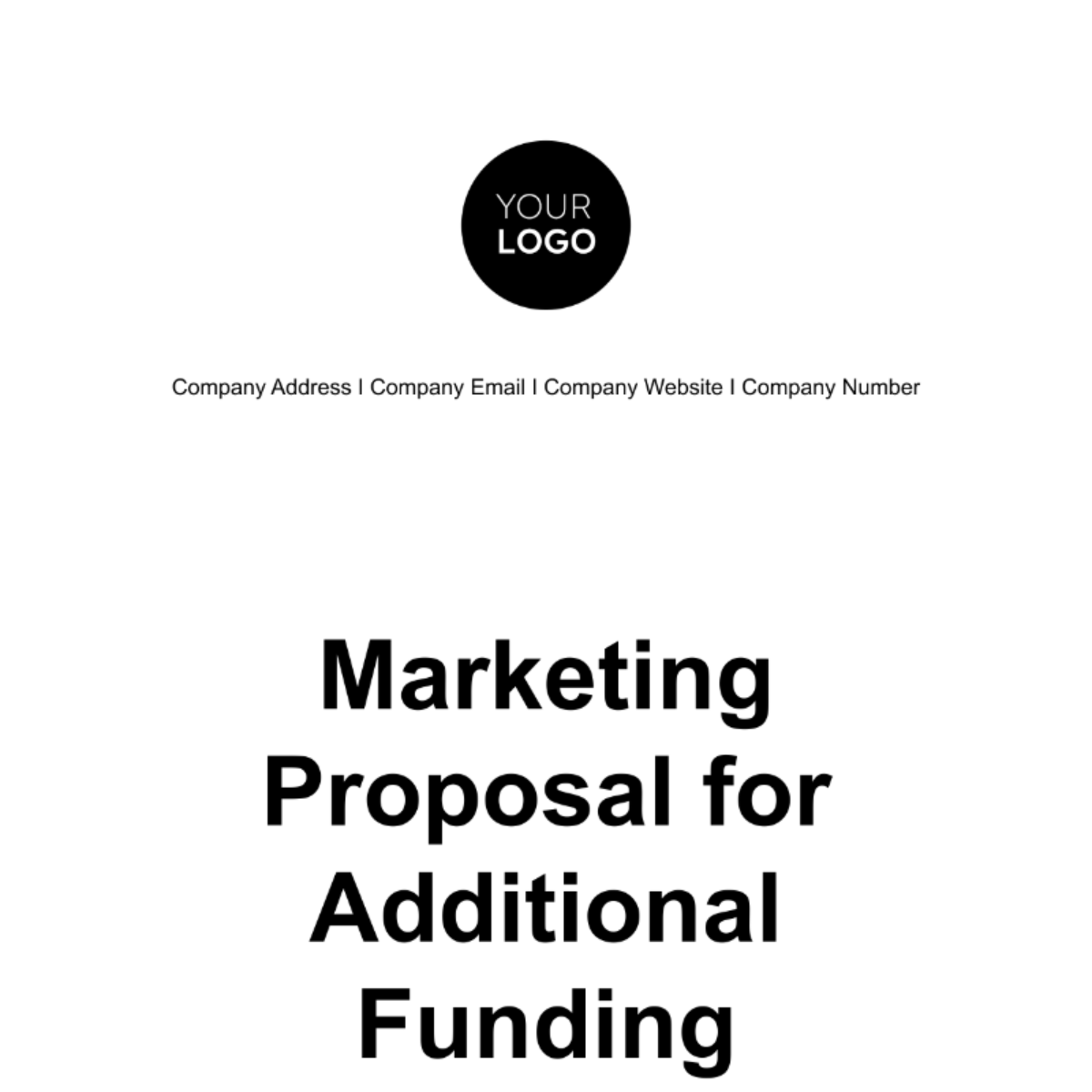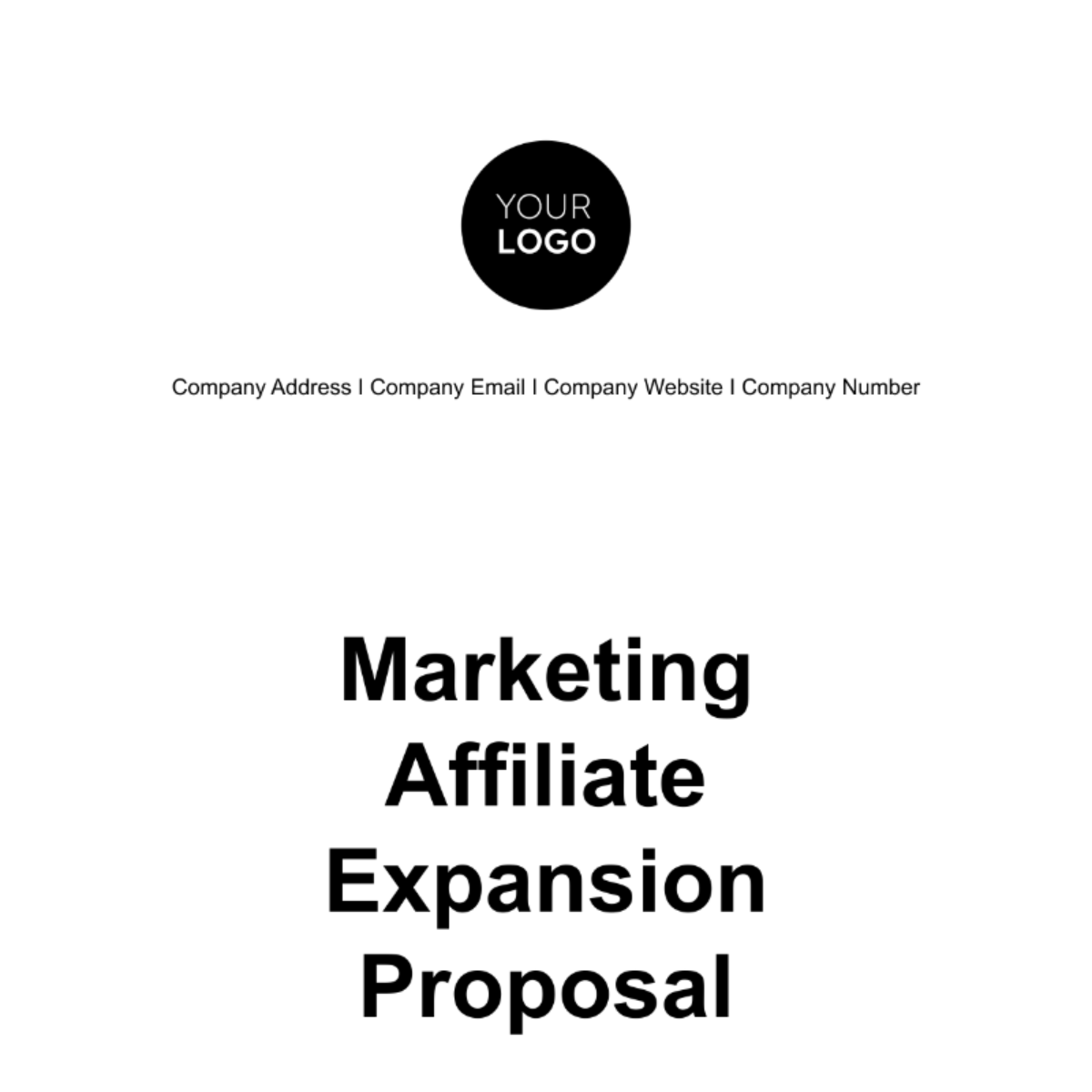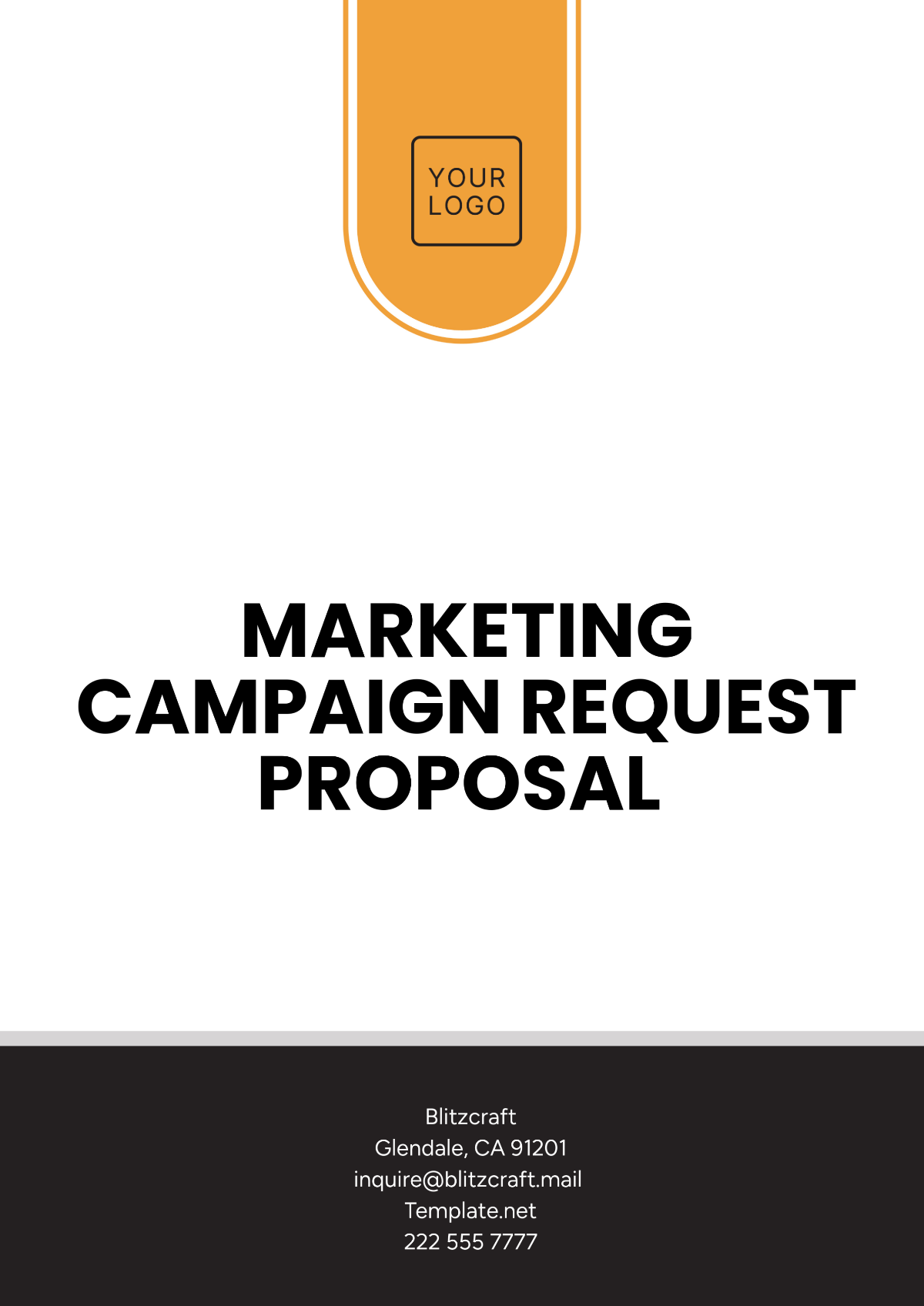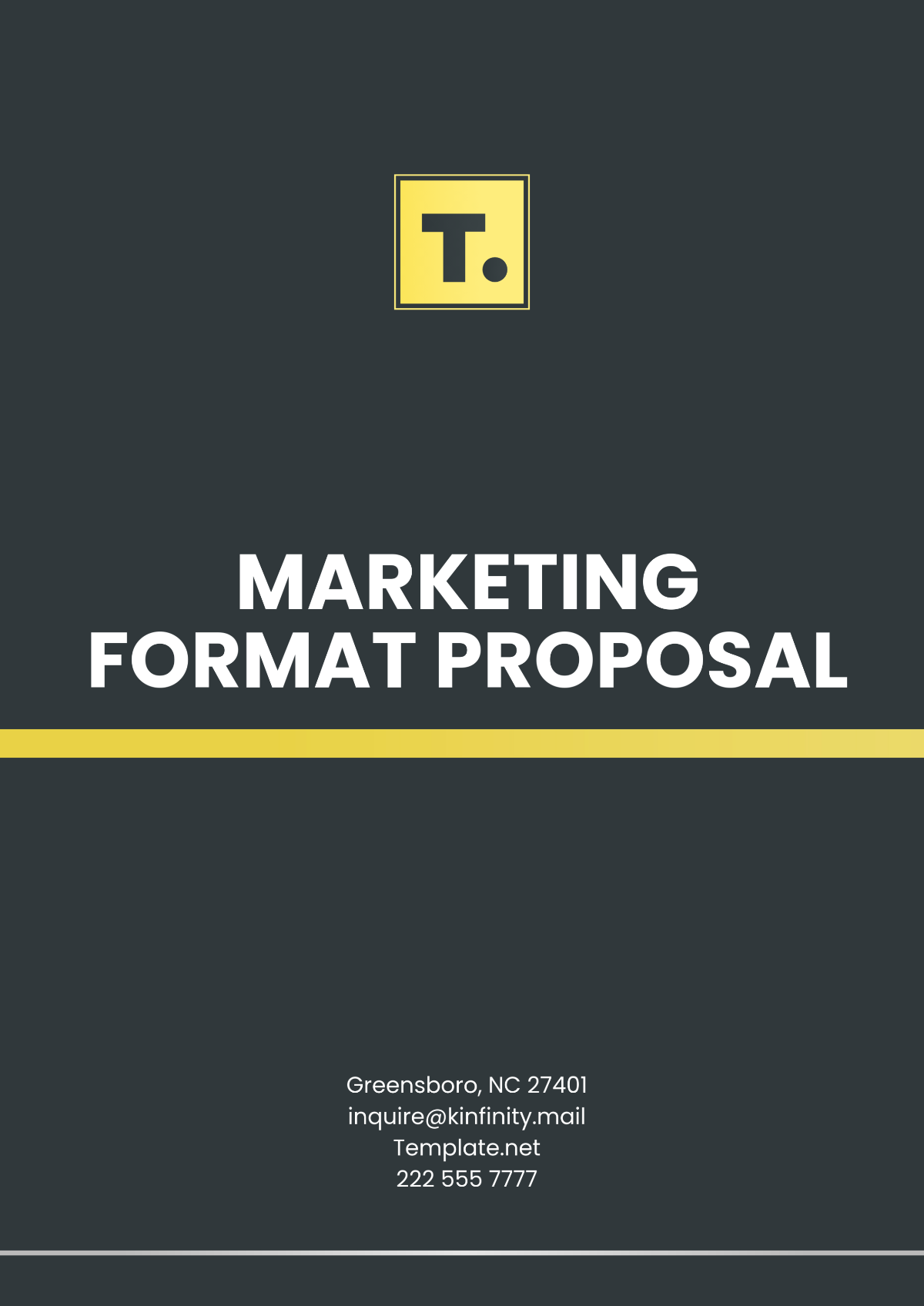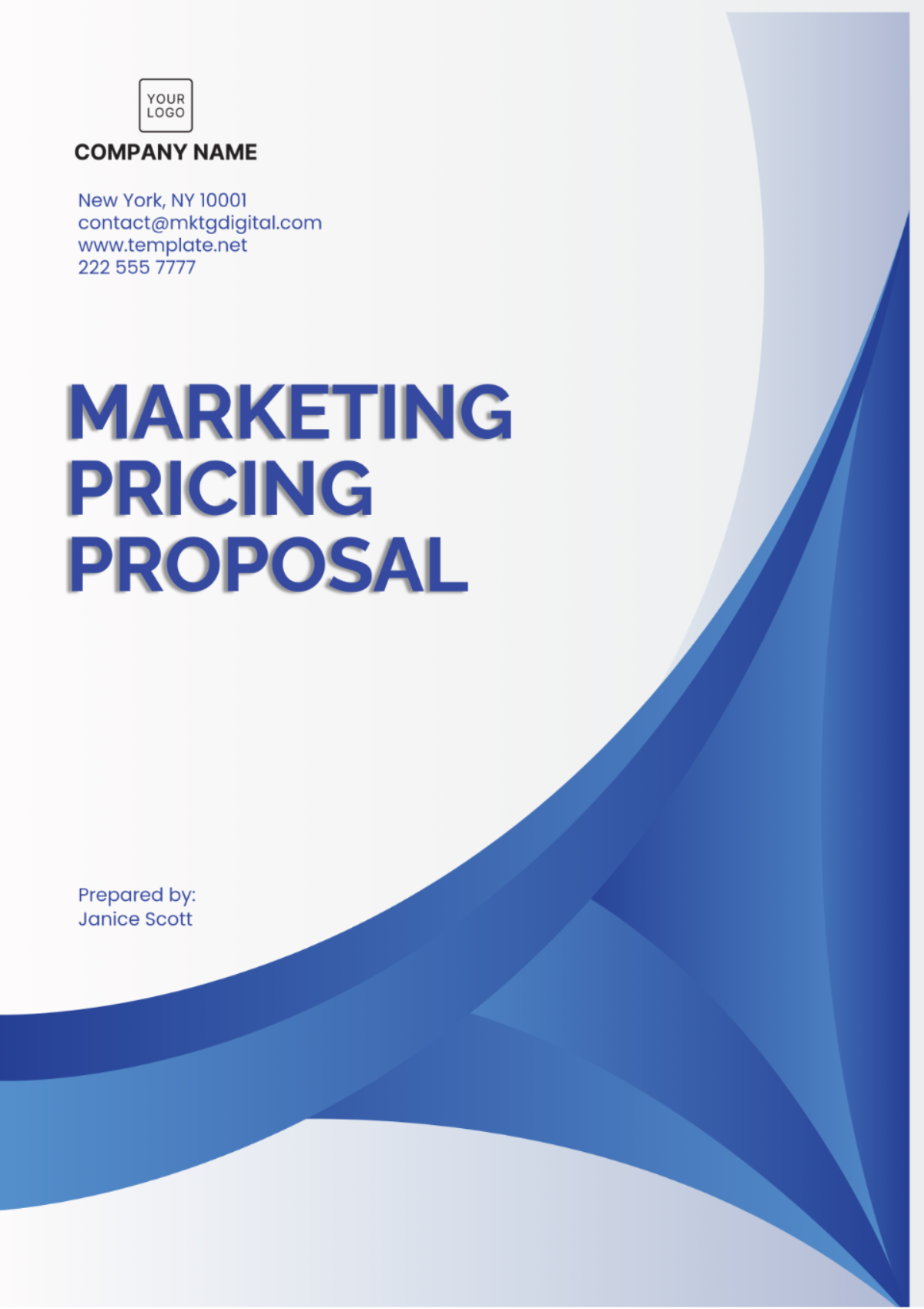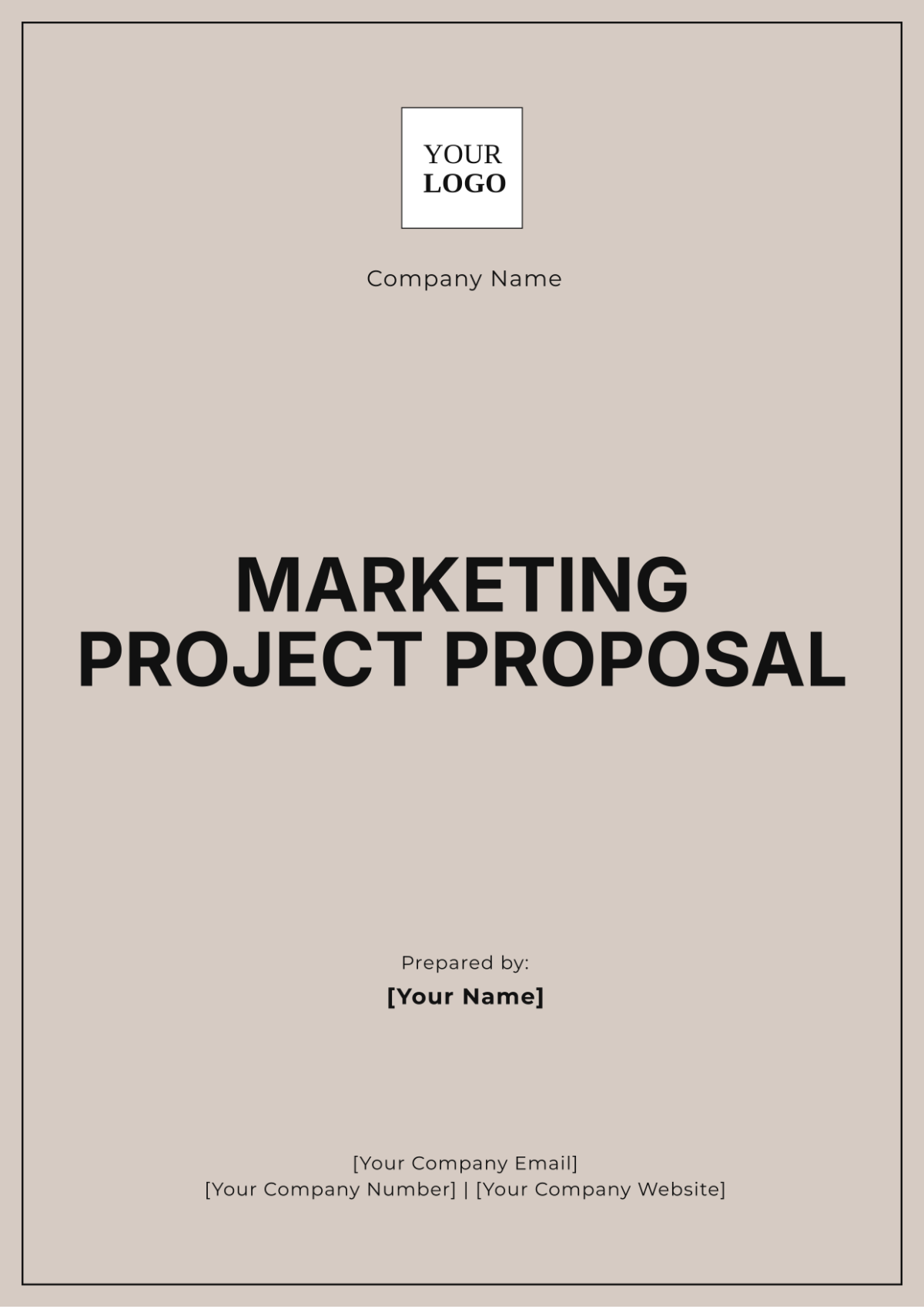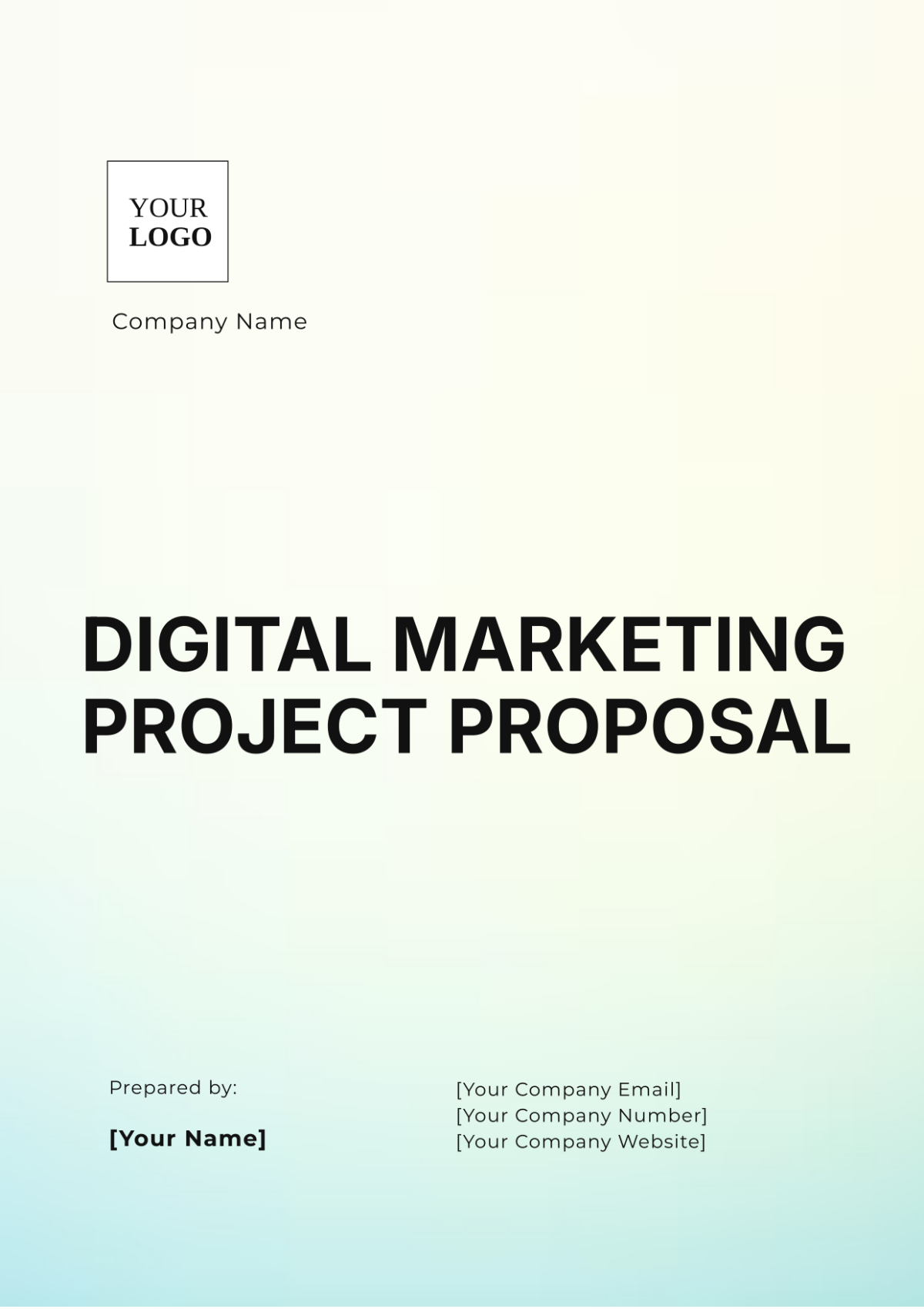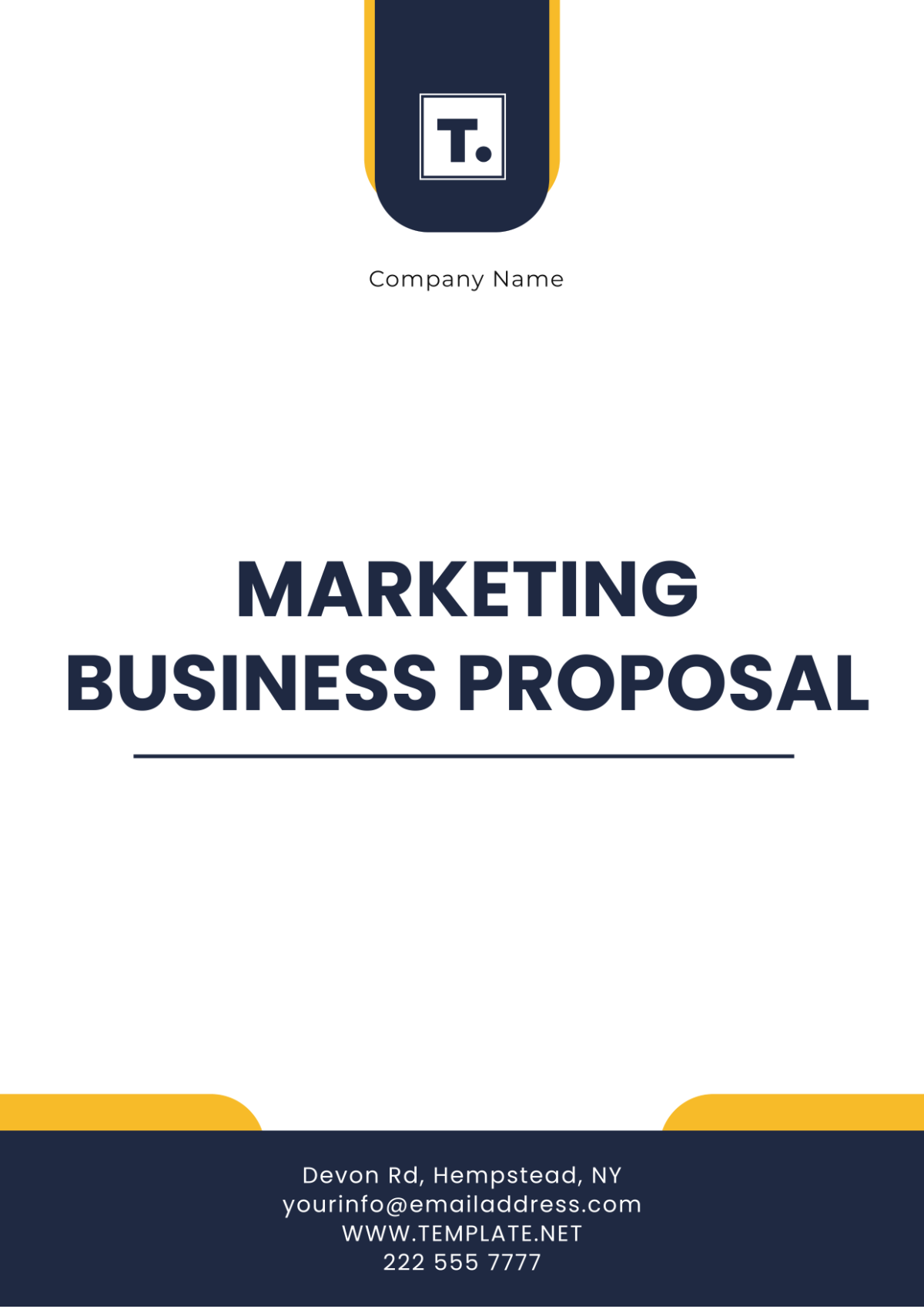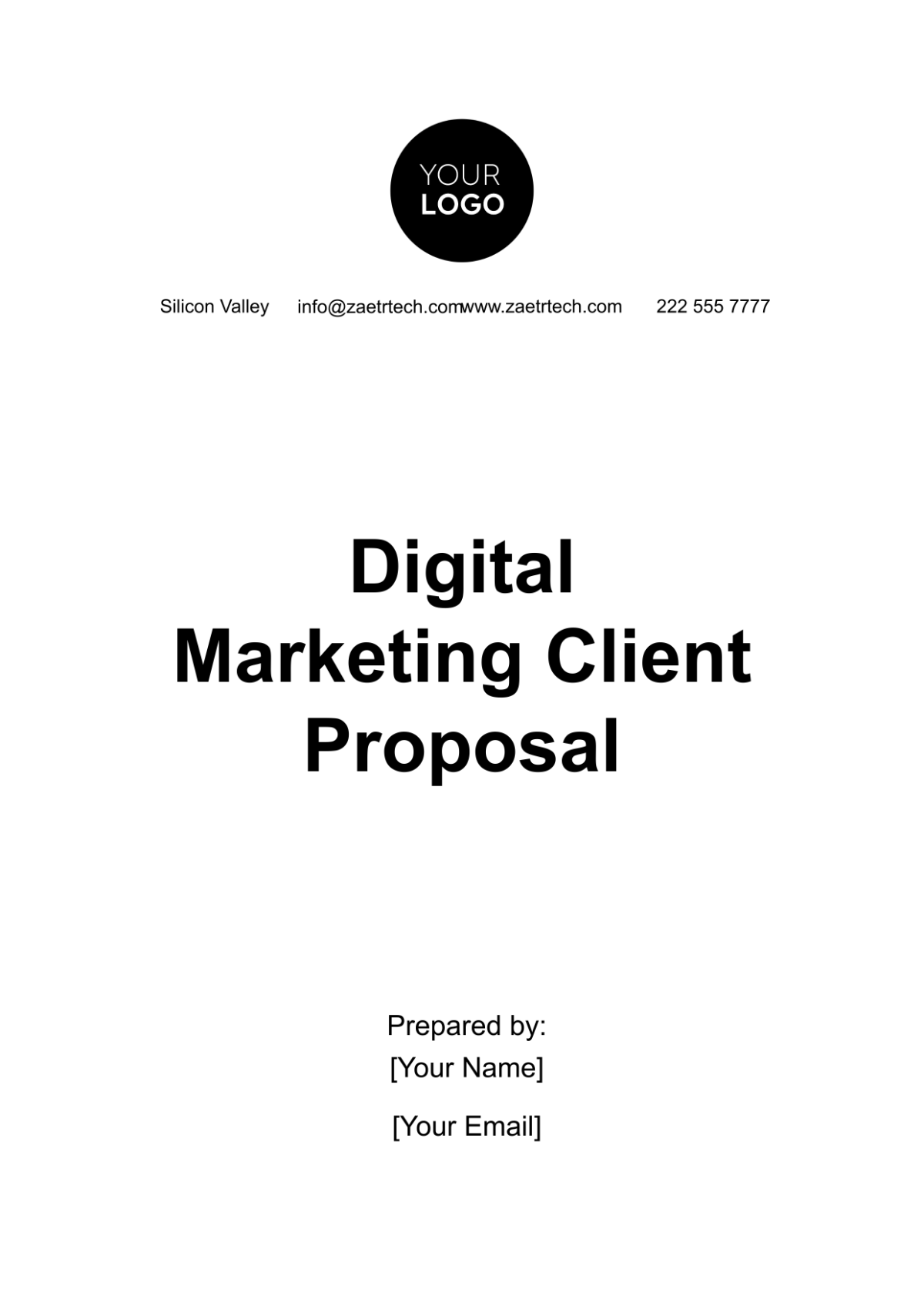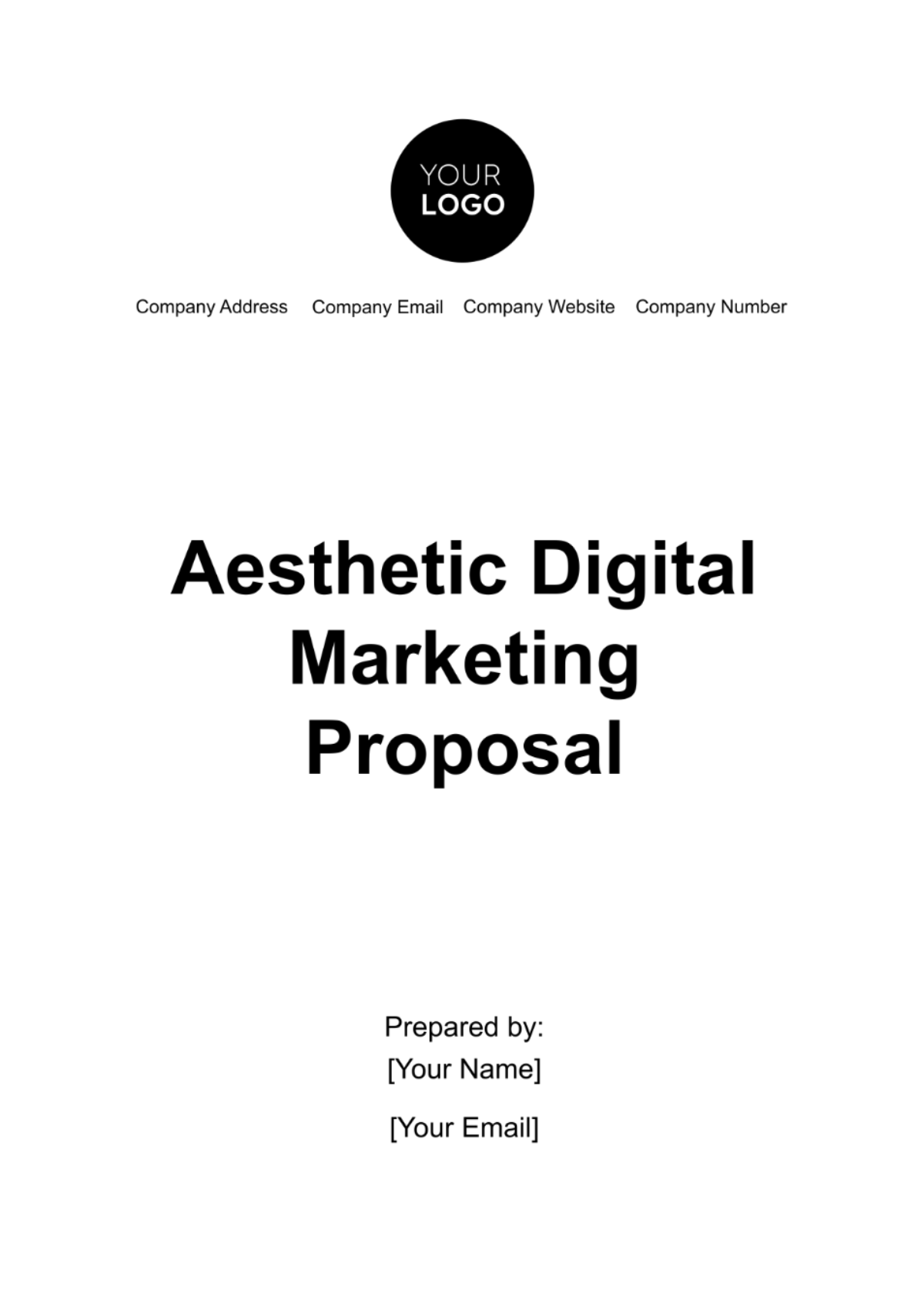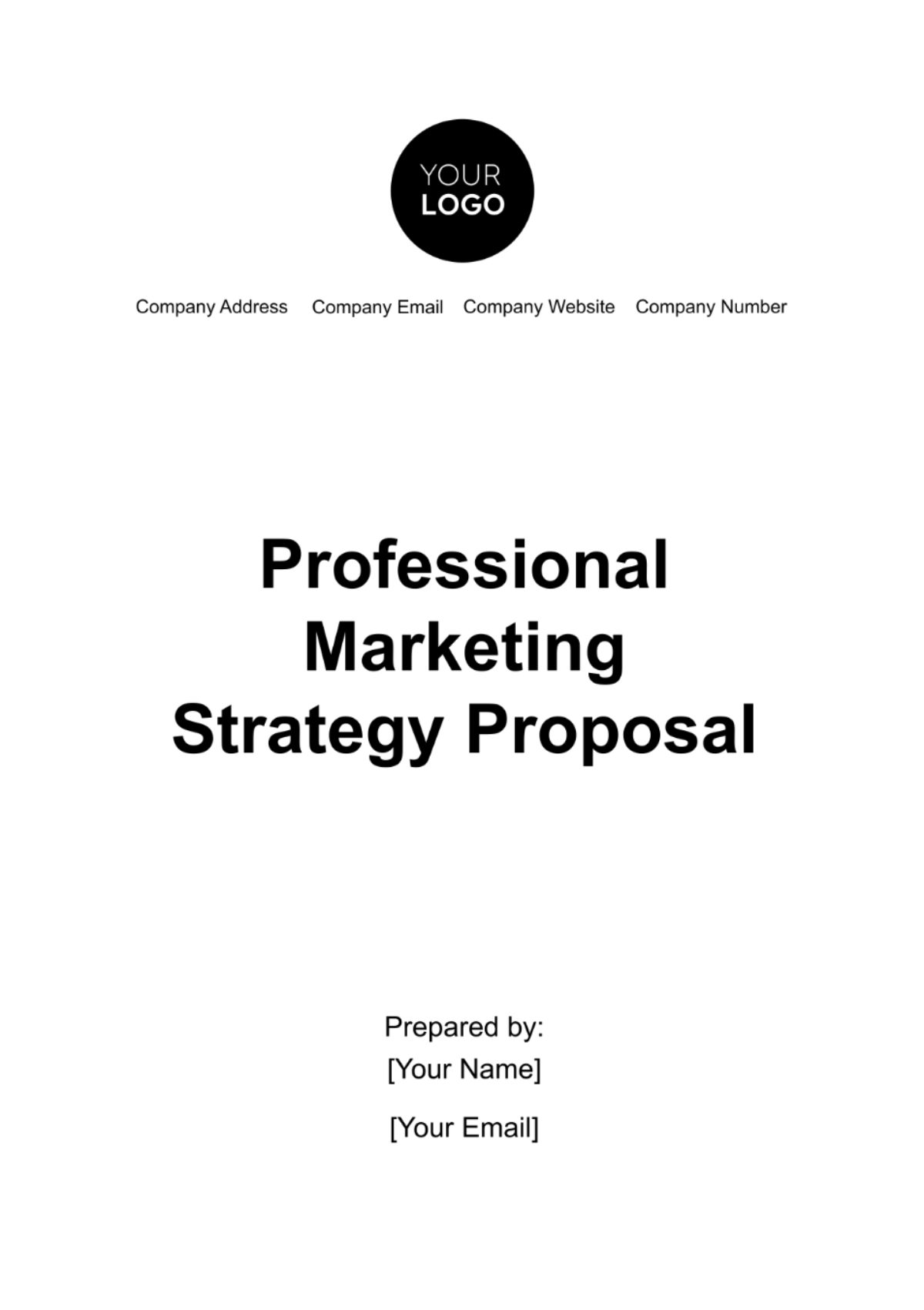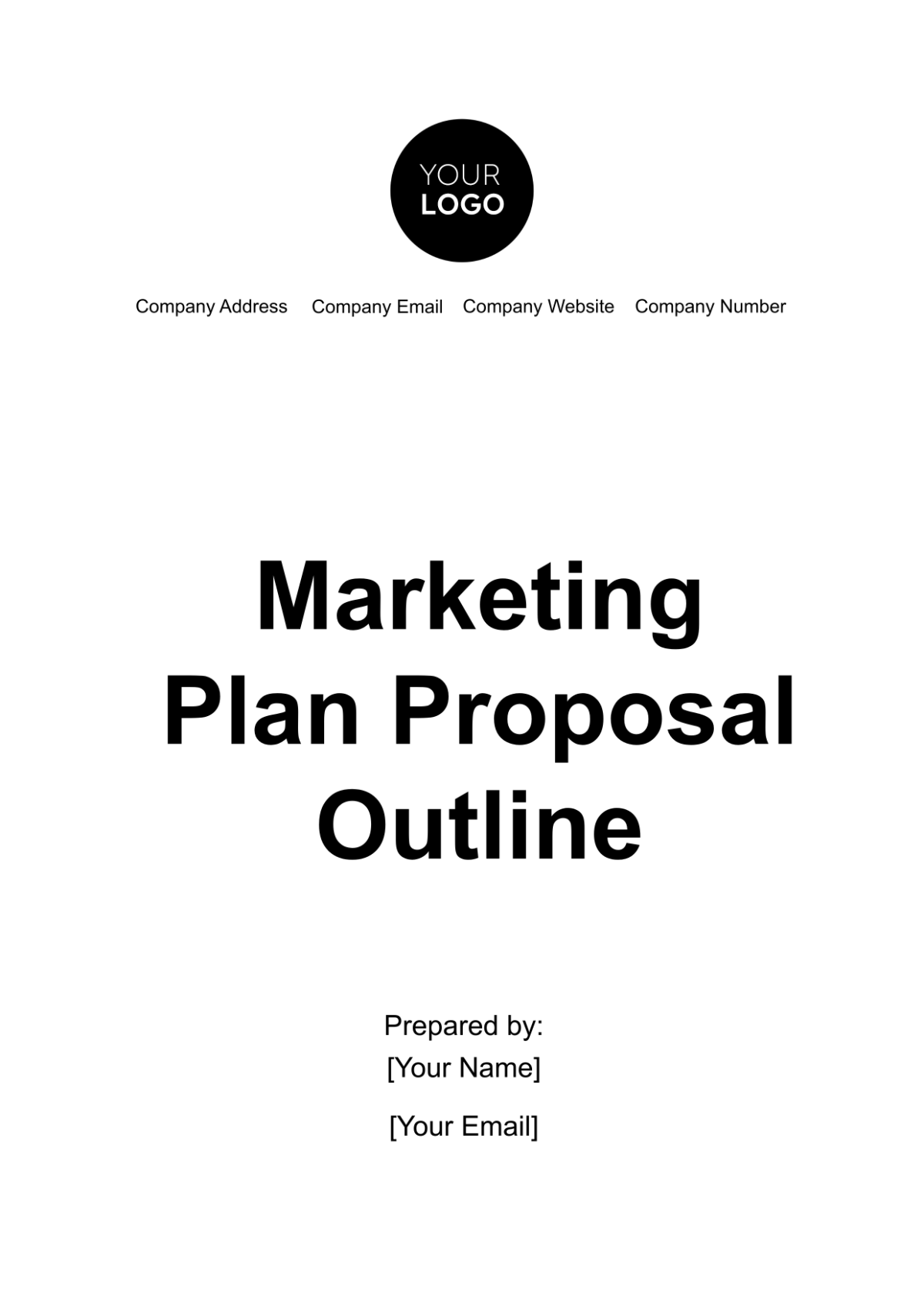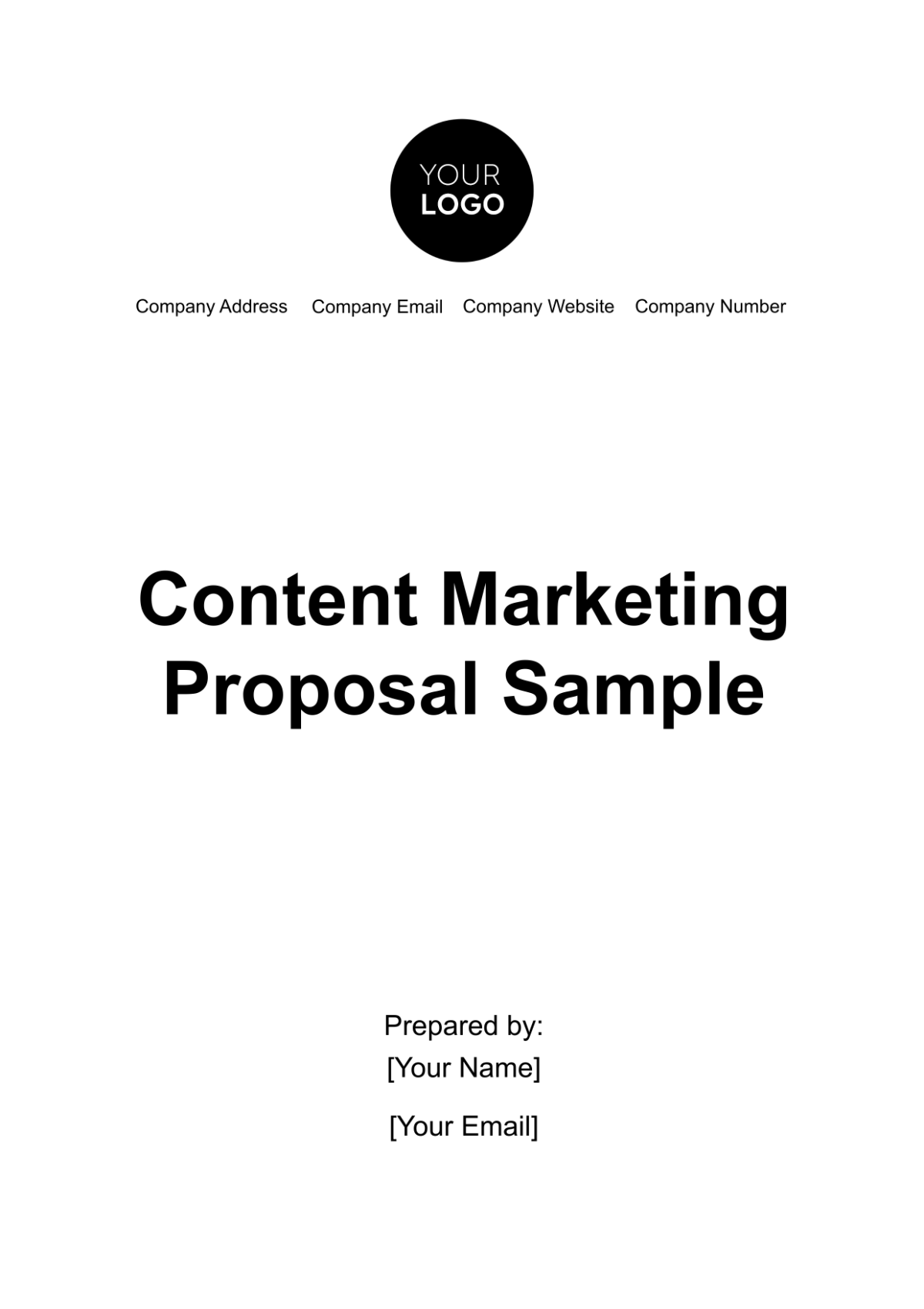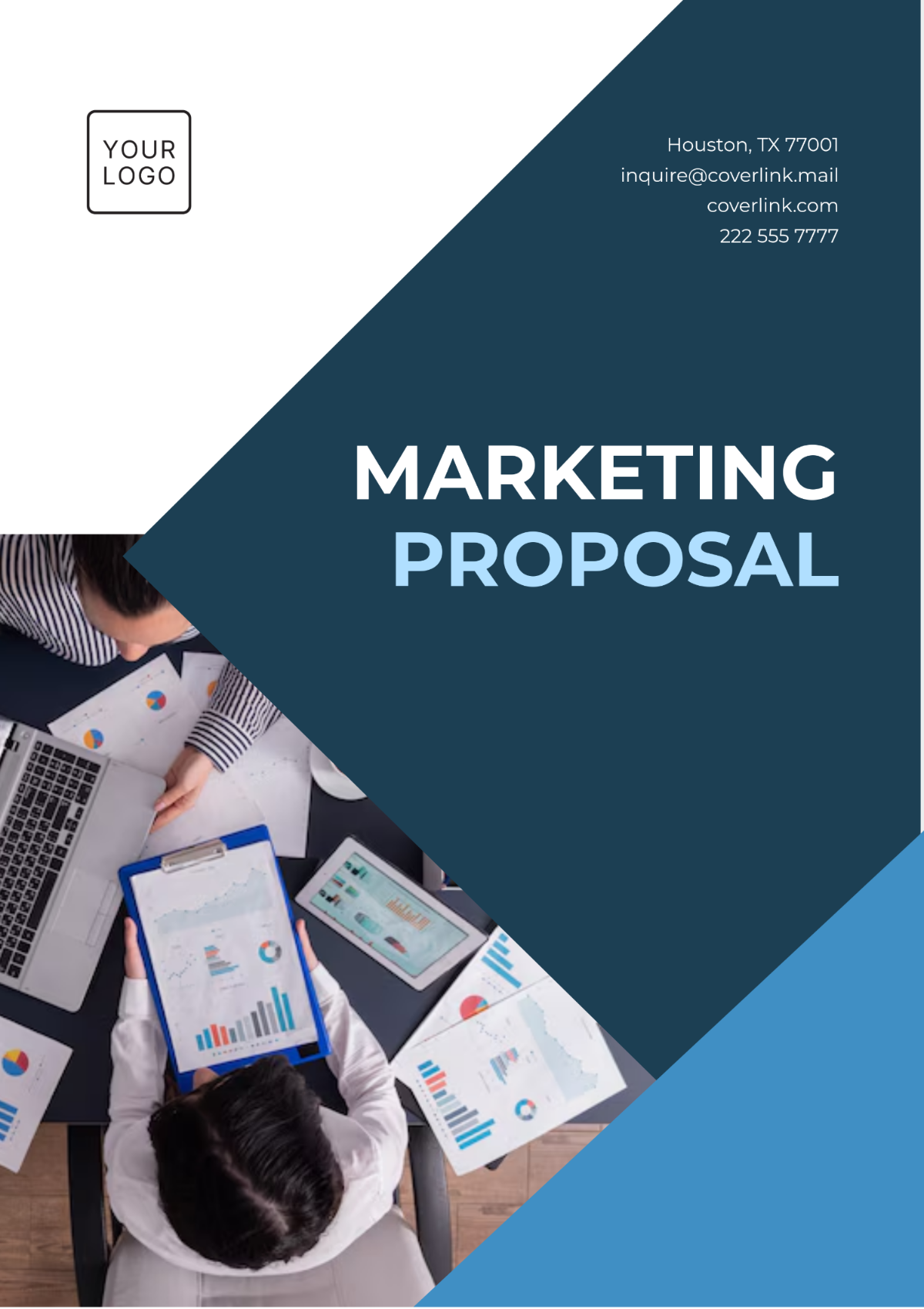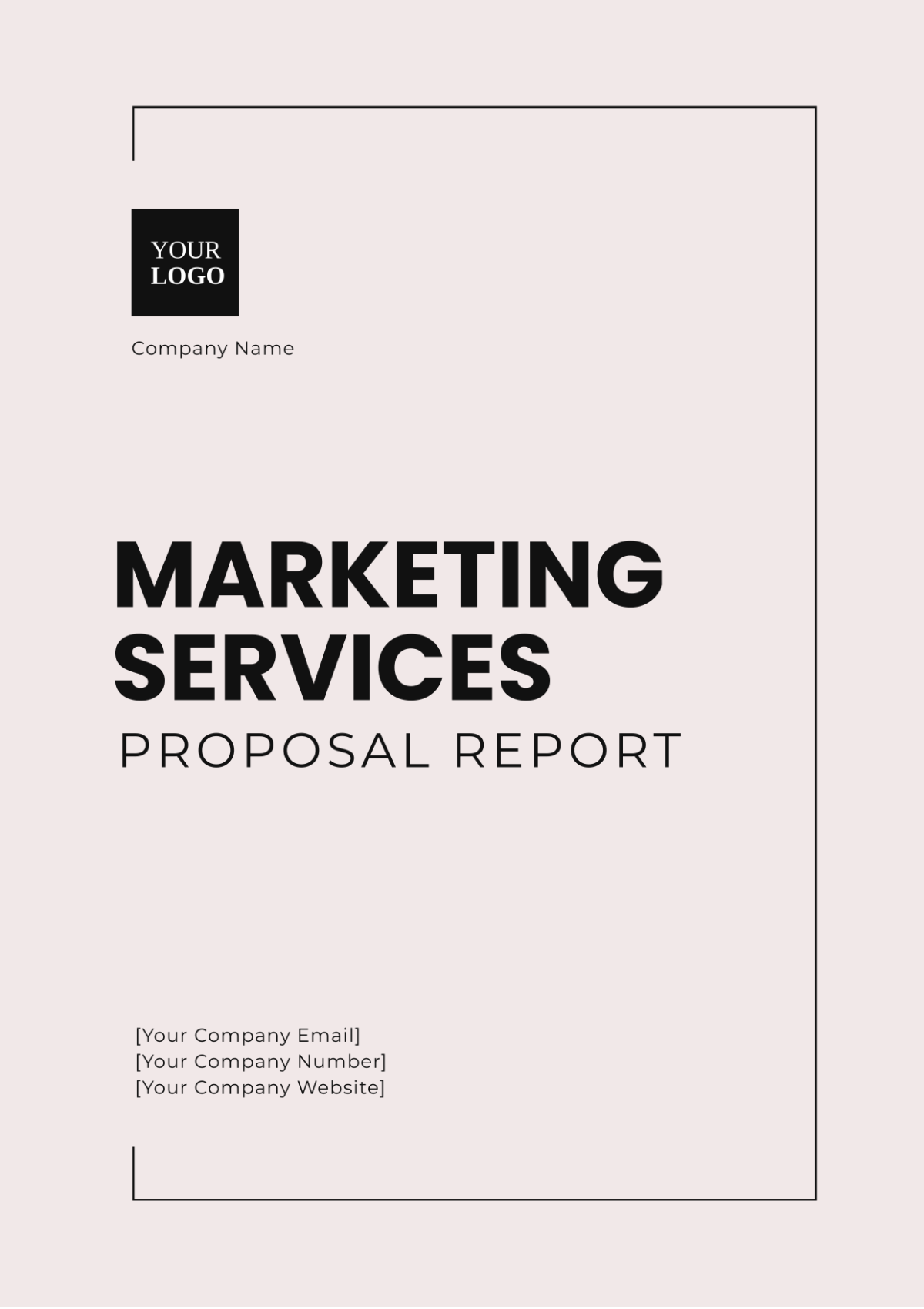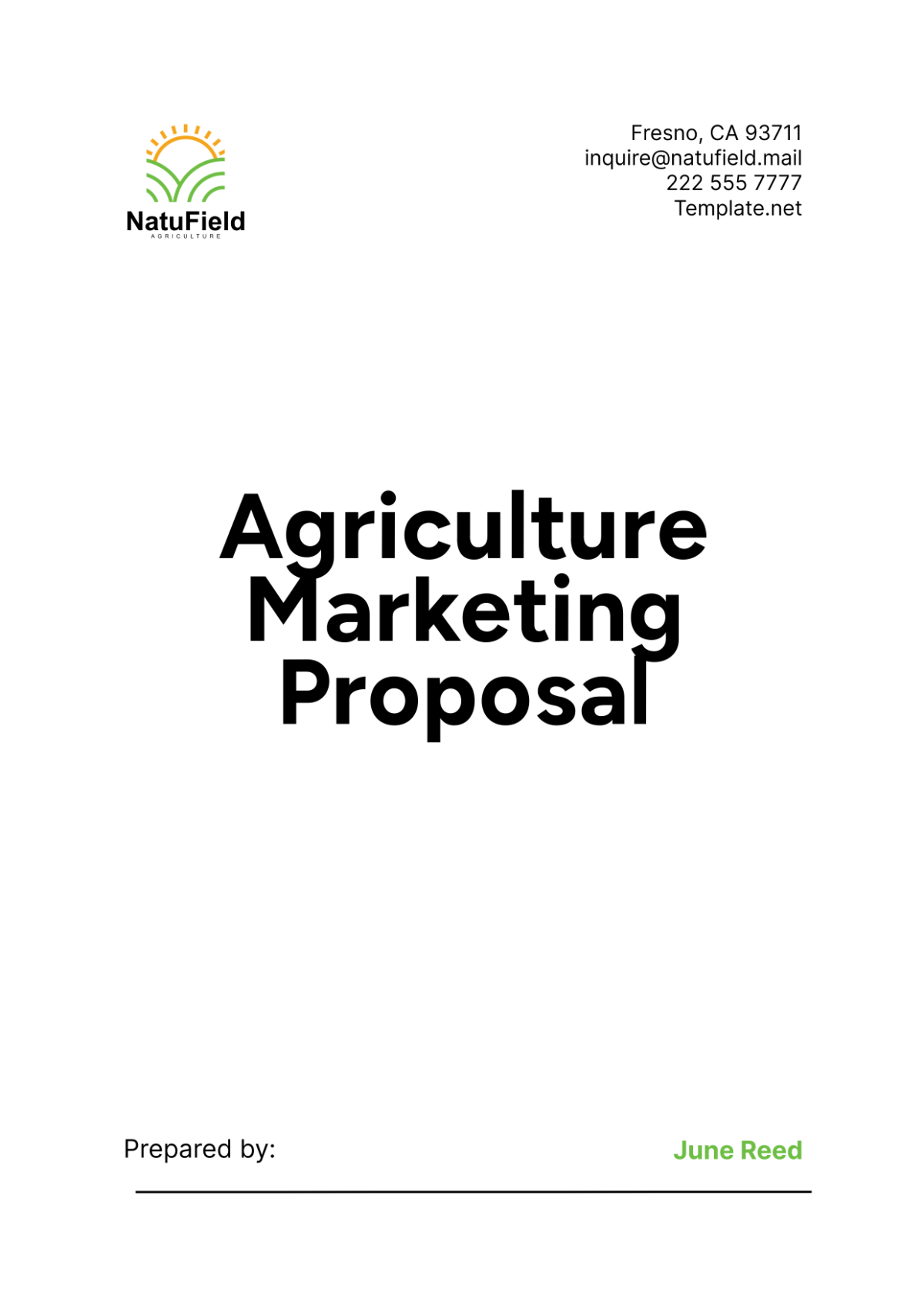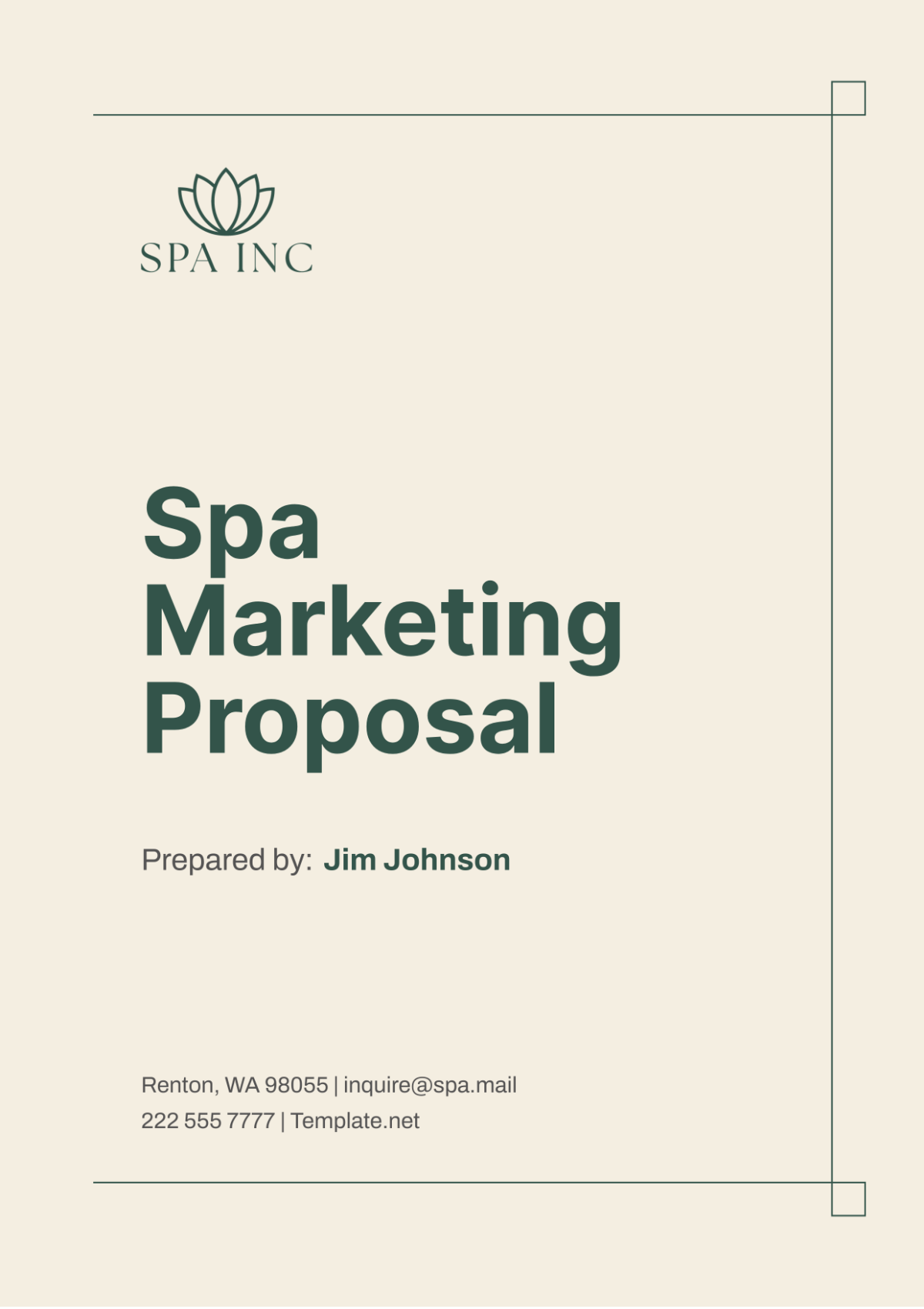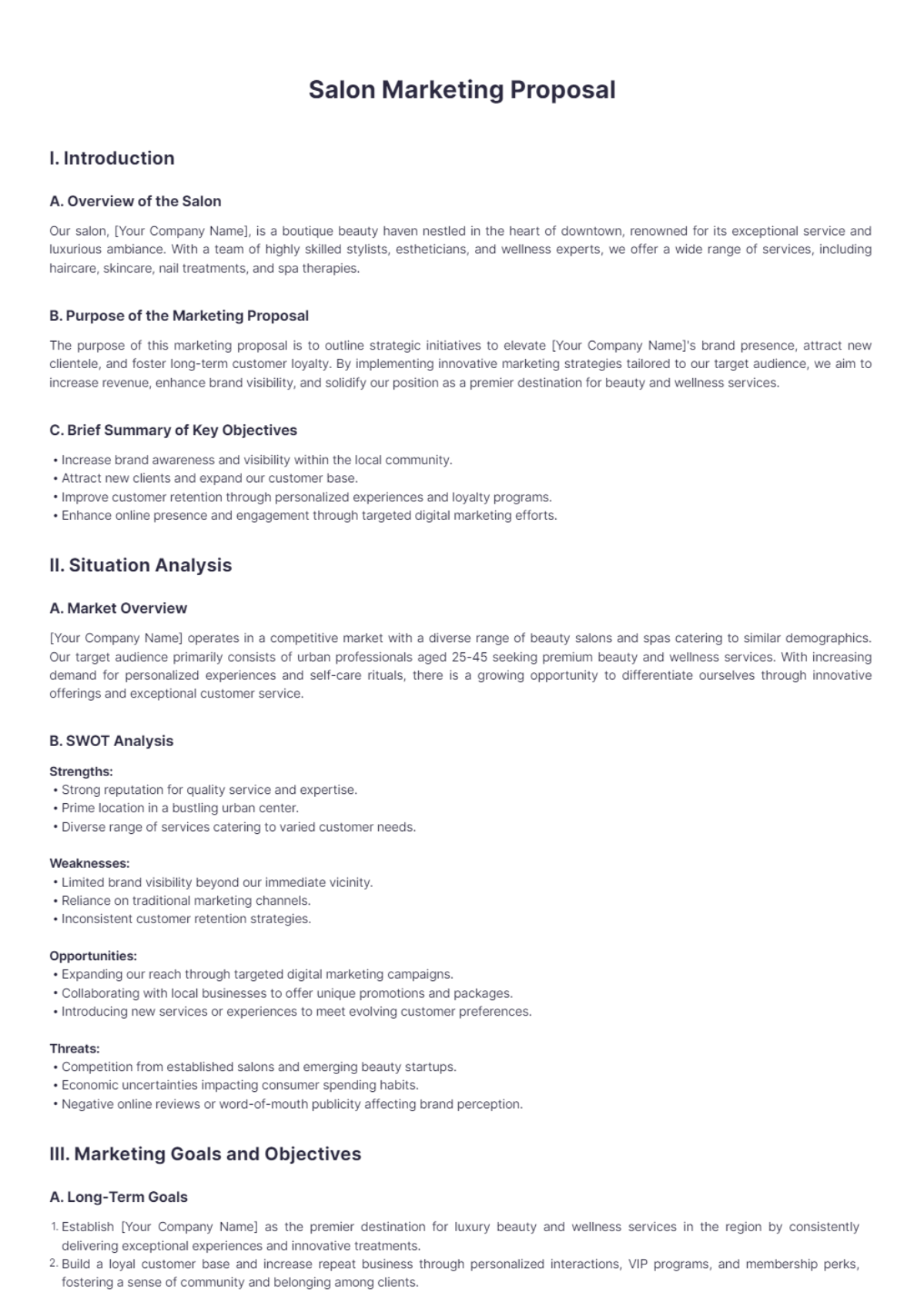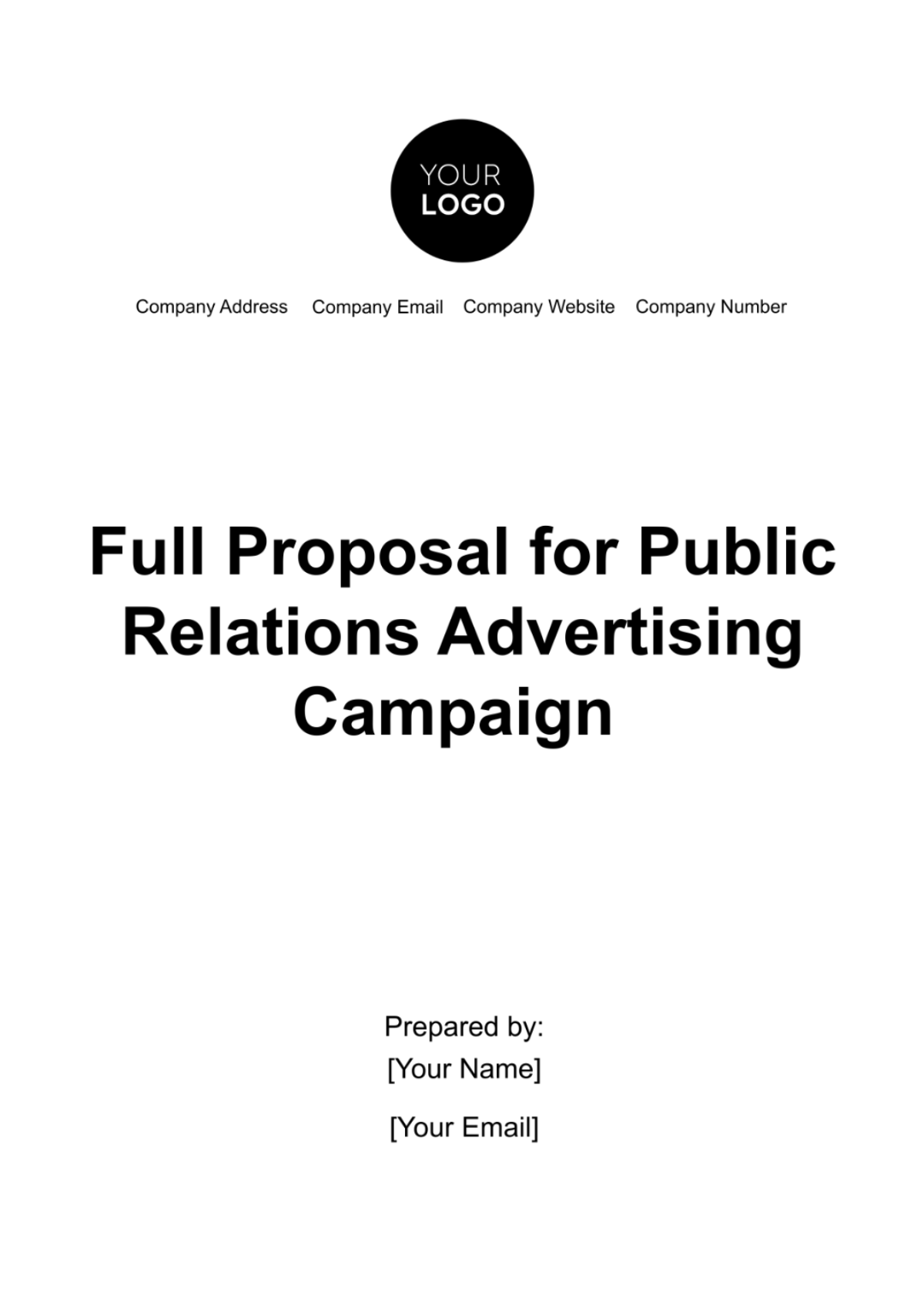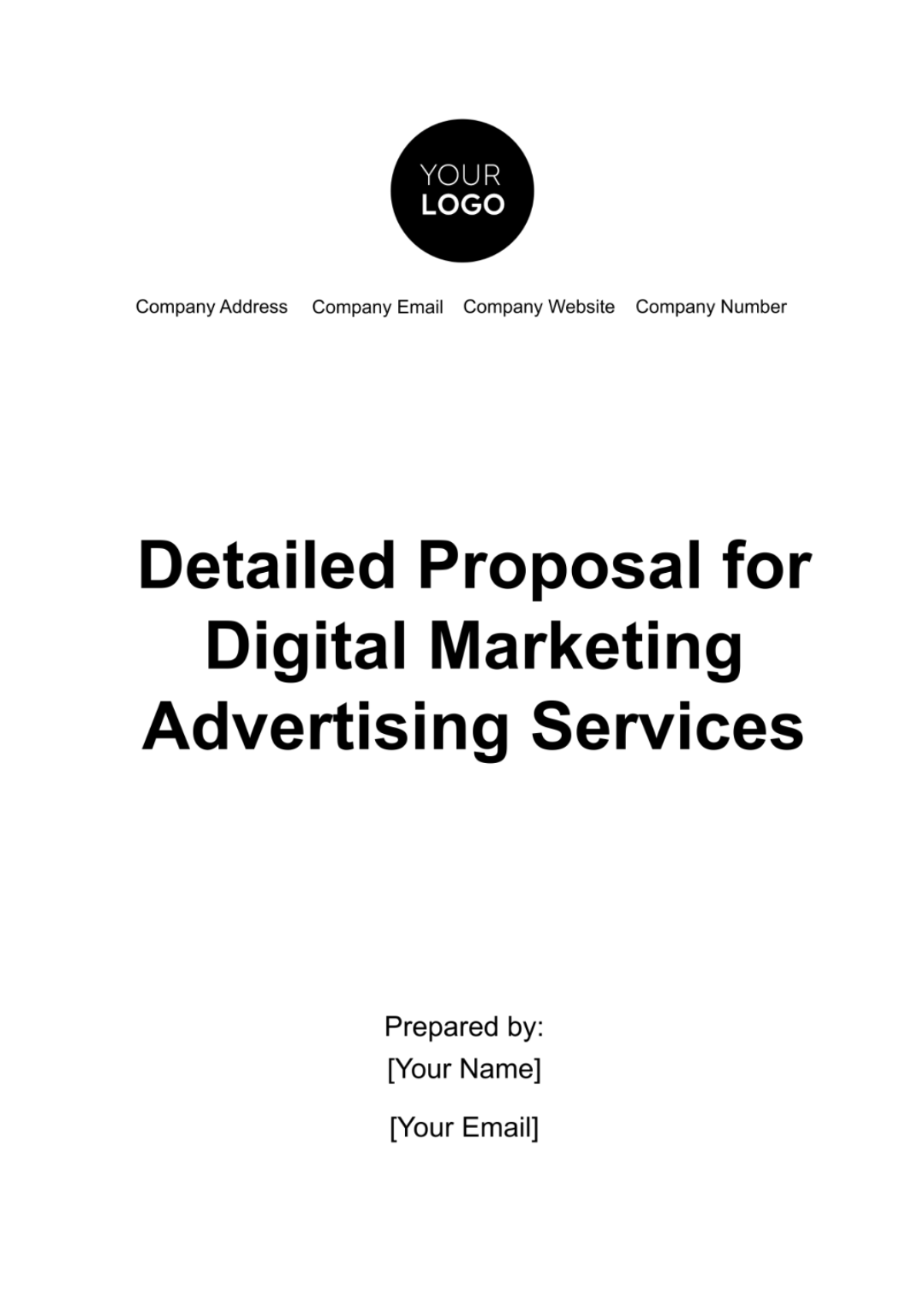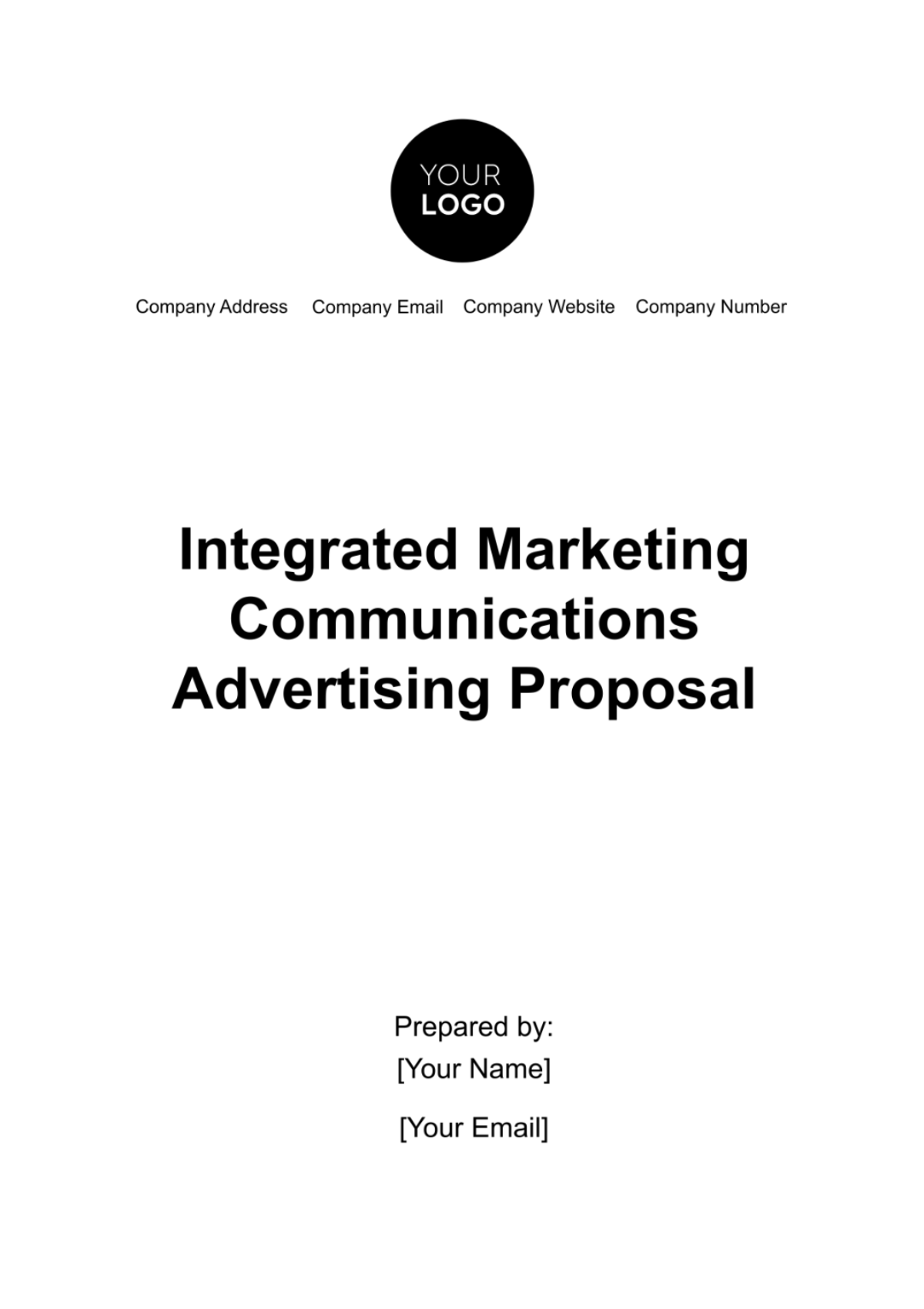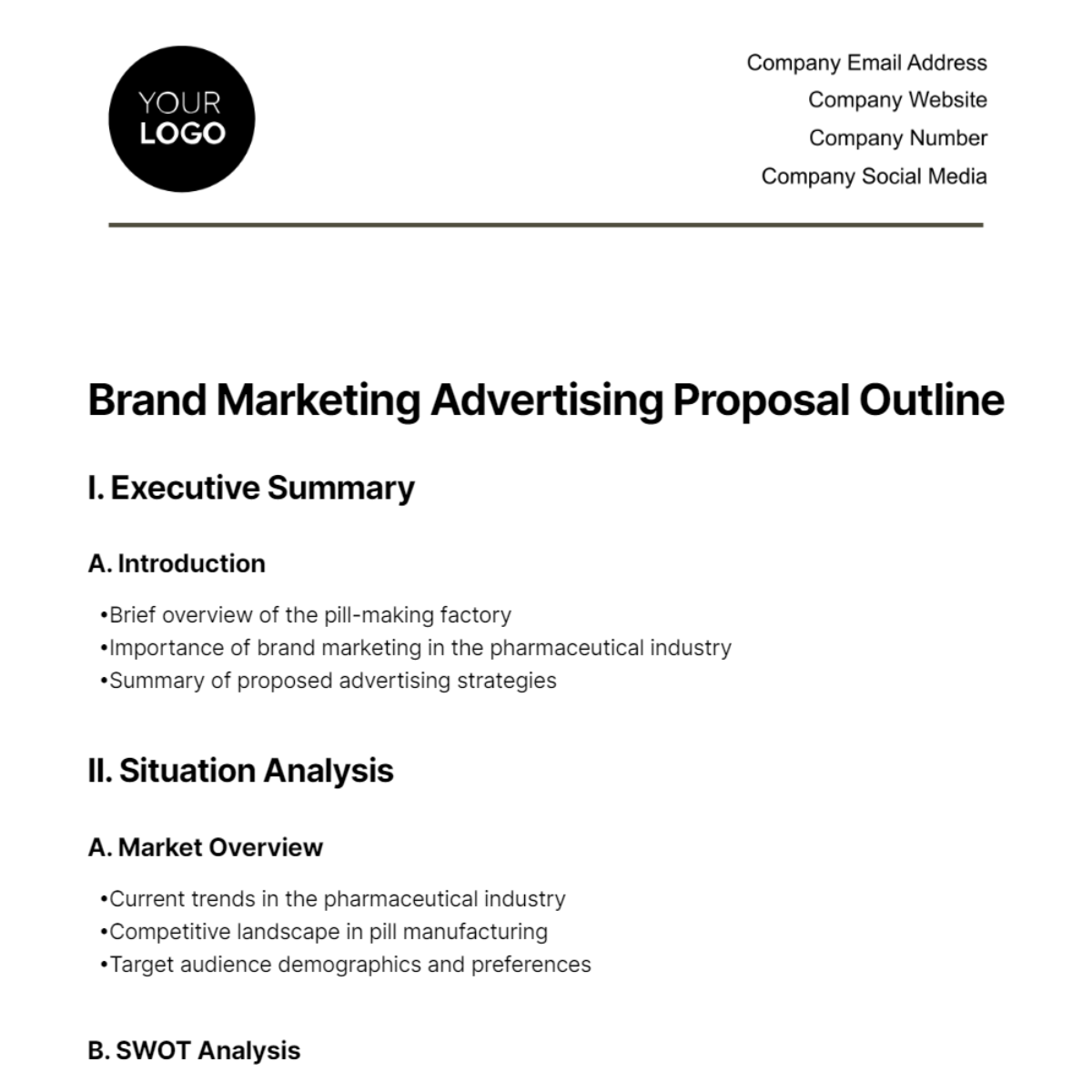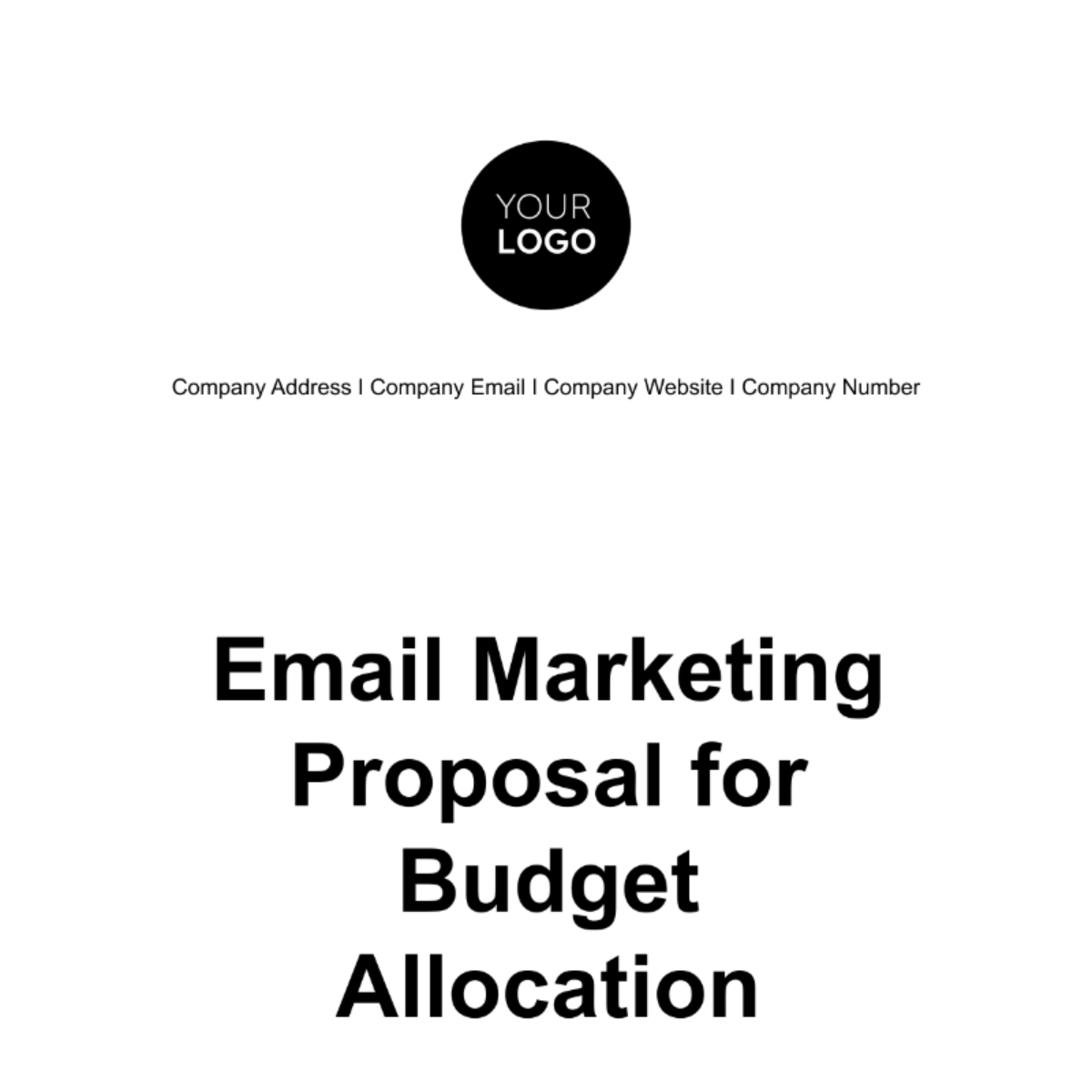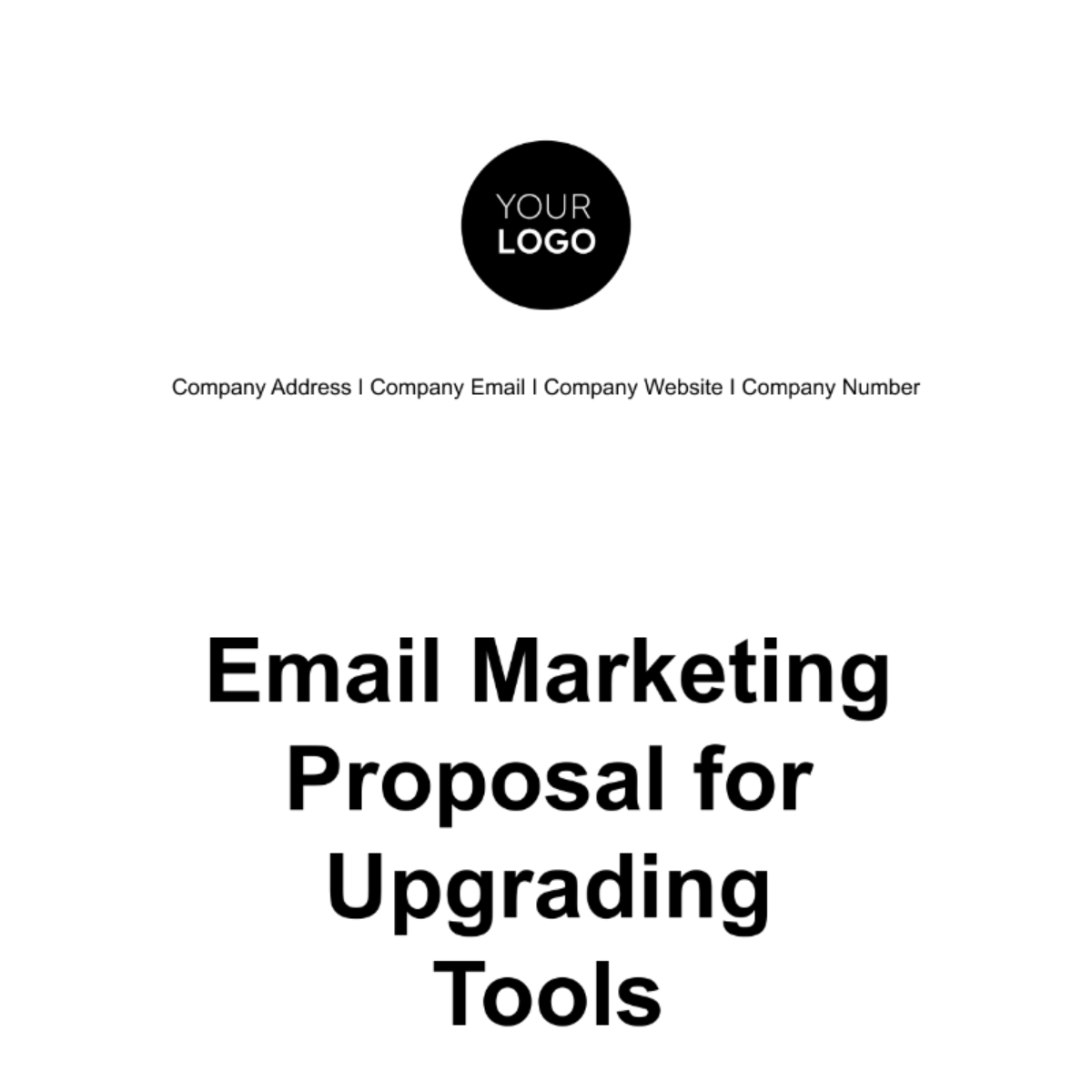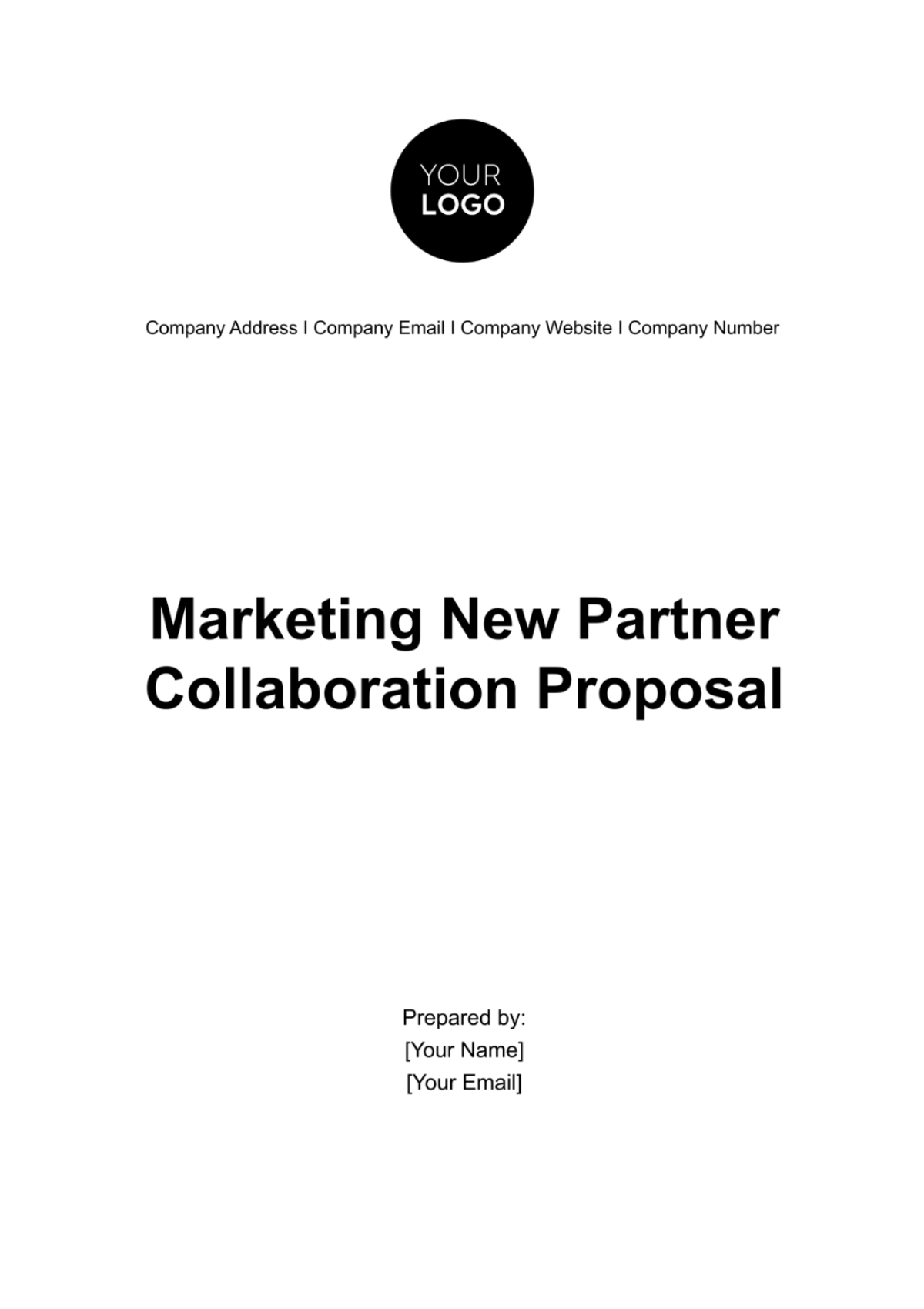Cafe Marketing Proposal
[Date]
To: [Partner's Name]
[Partner's Company Name]
[Partner's Company Address]
[Partner's Contact Number]
[Partner's Email]
From:
[Your Name]
[Your Company Name]
[Your Company Address]
[Your Company Number]
[Your Company Email]
1. Executive Summary
[Your Company Name] Cafe is dedicated to offering high-quality coffee and an inviting atmosphere for our customers. Our goal is to enhance our market presence, attract new customers, and increase sales through a strategic marketing plan. This proposal outlines our comprehensive marketing strategy, which includes identifying target audiences, conducting a competitive analysis, establishing key messages, adhering to branding guidelines, implementing promotional strategies, allocating a marketing budget, measuring success metrics, and fostering community engagement.
2. Objectives
The primary objectives of this marketing proposal are to drive foot traffic, increase sales, and build brand loyalty for [Your Company Name] Cafe. By executing a well-rounded marketing plan, we aim to create a memorable brand experience that resonates with our target audience.
Specific Objectives
1. Enhance Customer Engagement:
Goal: Increase customer interaction and retention through engaging events.
Outcome: Build a loyal customer base that frequents the cafe for both its products and its atmosphere.
2. Promote Brand Awareness:
Goal: Elevate our brand presence in the local community.
Outcome: Attract new customers and create a positive association with [Your Company Name] Cafe.
3. Drive Revenue Growth:
Goal: Boost sales through increased foot traffic and event participation.
Outcome: Achieve higher daily sales and a sustainable increase in overall revenue.
4. Support Local Artists and Businesses:
Goal: Create partnerships with local artists and businesses.
Outcome: Strengthen community ties and enhance the cafe’s cultural offerings.
5. Offer Unique Customer Experiences:
Goal: Provide unique and memorable experiences that differentiate us from competitors.
Outcome: Foster a sense of community and belonging among our customers.
3. Target Audience
Identifying the target audience is crucial in formulating an effective marketing strategy. Our primary audience includes young professionals, college students, and coffee enthusiasts who appreciate high-quality blends and a cozy atmosphere. Additionally, we aim to attract local residents who enjoy spending time at cafes, as well as tourists seeking unique local flavors.
Detailed Audience Segmentation
Primary Audience:
Young Professionals:
Demographics: Ages 25-40, often working in nearby offices.
Preferences: High-quality coffee, quick service, Wi-Fi availability, and a relaxing environment for breaks or remote work.
College Students:
Demographics: Ages 18-24, studying at local universities.
Preferences: Affordable pricing, Wi-Fi, study-friendly spaces, and group seating.
Coffee Enthusiasts:
Demographics: Ages 25-50, with a deep interest in specialty coffee.
Preferences: Premium coffee blends, knowledgeable staff, and unique brewing methods.
Secondary Audience:
Local Residents:
Demographics: Ages 30-60, living in the nearby community.
Preferences: Comfortable ambiance, community events, and loyalty programs.
Tourists:
Demographics: Ages 18-60, visiting the area.
Preferences: Unique local flavors, souvenir merchandise, and regional specialties.
Strategy
Tailoring our marketing efforts to meet the needs and wants of these diverse groups will enhance our outreach and community presence. By understanding their lifestyle and preferences, we can create targeted marketing messages and promotions that resonate with them.
4. Competitive Analysis
Understanding the competitive landscape is essential for positioning our cafe effectively. Key competitors include other local cafes, popular coffee chains, and specialty coffee shops. Analyzing their strengths and weaknesses enables us to identify opportunities for differentiation and improvement.
Competitor Breakdown
Local Cafes:
Strengths: Strong community ties, personalized service.
Weaknesses: Limited marketing budgets, smaller product range.
Popular Coffee Chains:
Strengths: Brand recognition, extensive marketing resources.
Weaknesses: Lack of personalized service, uniform ambiance.
Specialty Coffee Shops:
Strengths: High-quality coffee, innovative brewing methods.
Weaknesses: Higher prices, niche market appeal.
SWOT Analysis
Strengths | Weaknesses |
|---|---|
High-quality coffee blends | Limited seating capacity |
Personalized customer service | Higher price point compared to chains |
Inviting and cozy atmosphere | Limited brand recognition |
Opportunities | Threats |
|---|---|
Expanding online presence | Increasing competition from chains |
Hosting community events | Economic downturn affecting discretionary spending |
Introducing loyalty programs | Changing consumer preferences |
Strategy
We should focus on what makes our cafe unique, such as our premium coffee blends, personalized customer service, and inviting ambiance. Continuous monitoring of competitors’ promotional strategies and customer reviews will help us stay ahead in the market.
5. Key Messages
The key messages of our marketing campaign are critical in establishing and reinforcing [Your Company Name] Cafe’s brand identity. These messages should consistently highlight the quality, taste, and unique aspects of our cafe. By emphasizing our commitment to sourcing the finest coffee beans and delivering a memorable customer experience, we can effectively attract and retain customers.
Core Messaging Themes
Quality and Taste:
Message: "Experience the finest coffee blends, sourced from around the world and brewed to perfection."
Expanded Content: Highlight the origin of our coffee beans, the rigorous selection process, and the expertise of our baristas in brewing each cup. Share stories about the farmers we partner with and the sustainable practices they use. This narrative can be woven into our website, social media posts, and in-cafe materials to create a connection between our customers and the quality of our products.
Customer Experience:
Message: "A cozy, welcoming space where every cup is crafted with care and every visit feels like home."
Expanded Content: Use visuals and testimonials to showcase the inviting atmosphere of our cafe. Highlight features such as comfortable seating, free Wi-Fi, and thoughtful touches like cozy lighting and ambient music. Share customer stories and experiences to create a relatable and emotional connection with our audience. This can be done through blog posts, social media features, and customer spotlights.
Community Hub:
Message: "More than just a cafe – a place to connect, unwind, and be part of the community."
Expanded Content: Highlight our involvement in local events, collaborations with local artists and businesses, and support for community causes. Use social media and our website to promote upcoming events and share recaps of past events with photos and customer feedback. Encourage customers to share their experiences at our cafe, creating user-generated content that further reinforces this message.
Promotional Focus
Special Events:
Message: "Join us for live music nights, coffee tastings, and community gatherings."
Expanded Content: Promote each event with dedicated marketing efforts, including posters in the cafe, social media announcements, and email invitations. Create event-specific content such as interviews with performers, behind-the-scenes looks at coffee tasting preparations, and highlights of past events. Encourage customers to RSVP and share their attendance on social media to create buzz and anticipation.
Loyalty Programs:
Message: "Earn rewards with every purchase and enjoy exclusive member benefits."
Expanded Content: Detail the benefits of joining our loyalty program, such as earning points for purchases, receiving discounts, and gaining access to special offers and events. Use email marketing to update members on their point balance, upcoming rewards, and exclusive opportunities. Feature testimonials from loyal customers who have benefited from the program to showcase its value.
Seasonal Promotions:
Message: "Savor the flavors of the season with our limited-time offerings."
Expanded Content: Develop seasonal menus that highlight unique flavors and ingredients relevant to the time of year. Use high-quality visuals and descriptive content to showcase these offerings on social media, in emails, and on our website. Create anticipation with countdowns to the launch of seasonal items and encourage customers to share their experiences with these limited-time treats.
Strategy
To maintain audience engagement and interest, our messaging should be dynamic and reflect the various special events, loyalty programs, and seasonal promotions that [Your Company Name] Cafe offers. Here’s how we can achieve this:
1. Integrated Marketing Communications:
Ensure that all marketing channels consistently reflect our key messages. From social media posts and email newsletters to in-cafe signage and staff interactions, every touchpoint should reinforce the themes of quality, customer experience, and community.
Use a mix of content types, including photos, videos, blogs, and customer testimonials, to keep our messaging fresh and engaging.
2. Regular Updates and Promotions:
Keep our audience informed about new promotions, events, and seasonal offerings through regular updates. Schedule social media posts, email newsletters, and in-cafe announcements to coincide with these activities.
Create a content calendar to plan and coordinate our marketing efforts, ensuring that each message is timely and relevant.
3. Customer Engagement and Feedback:
Encourage customer interaction through social media challenges, polls, and feedback requests. Use this feedback to continuously improve our offerings and marketing strategies.
Highlight customer stories and testimonials in our marketing materials to build a community-driven narrative.
6. Branding Guidelines
Consistent branding is vital to establishing our cafe's identity. This includes the use of a defined color palette, typography, logos, and imagery. Every piece of marketing material should reflect our brand’s personality and values, thereby creating a cohesive brand experience.
Visual and Tone Guidelines
Color Palette:
Primary Colors: Warm brown, cream, and earthy tones.
Accent Colors: Green (for freshness) and gold (for premium quality).
Typography:
Primary Font: Elegant serif for headings.
Secondary Font: Clean sans-serif for body text.
Logos and Imagery:
Use high-resolution images that showcase our coffee, ambiance, and happy customers.
Logos should be prominently displayed on all marketing materials.
Tone and Voice:
Warm, inviting, and sophisticated.
Friendly yet professional communication style.
Strategy
All content, from social media posts to in-store signage, must align with these branding elements to reinforce our image and connect with customers on a deeper level.
7. Promotional Strategies
A mix of both online and offline promotional strategies will be implemented. Social media marketing, email campaigns, and a responsive website with a blog can effectively reach our digital audience. Collaborating with influencers and hosting online contests can also drive engagement and brand awareness.
Online Strategies
Social Media Marketing:
Platforms: Facebook, Instagram, Twitter.
Content: Regular updates, customer interactions, promotions.
Frequency: Daily posts and stories.
Email Marketing:
Monthly newsletters with promotions, events, and news.
Segmented email lists for targeted campaigns.
Website and SEO:
Regular blog updates with coffee-related content.
SEO optimization for better search engine ranking.
Influencer Collaborations:
Partner with local influencers for reviews and promotions.
Host online contests and giveaways.
Offline Strategies
Print Advertising:
Flyers and posters in local businesses.
Ads in local newspapers and magazines.
Community Engagement:
Sponsorship of local events and charities.
Hosting in-cafe events like live music nights and coffee tastings.
Strategy
Combining online and offline efforts ensures we reach a broad audience and maintain consistent engagement with our customers.
8. Budget Allocation
Allocating the marketing budget across different channels is critical for maximizing impact. A significant portion will be dedicated to digital marketing efforts, considering the high exposure and engagement potential. This includes social media ads, email marketing services, and SEO optimization.
Budget Breakdown
Category | Amount | Percentage of Total Budget |
|---|---|---|
Social Media Marketing | $5,000 | 25% |
Email Marketing | $2,000 | 10% |
SEO and Website | $3,000 | 15% |
Influencer Marketing | $2,000 | 10% |
Print Advertising | $3,000 | 15% |
Community Events | $4,000 | 20% |
Miscellaneous | $1,000 | 5% |
Total | $20,000 | 100% |
Strategy
Regular assessment and adjustment of the budget will ensure funds are used efficiently and effectively in driving our marketing campaigns.
9. Success Metrics
Measuring the success of our marketing strategies involves tracking key performance indicators (KPIs). Metrics such as social media engagement, website traffic, and conversion rates provide insights into campaign effectiveness. Setting quantifiable goals allows for precise measurement and assessment.
Key Performance Indicators
Social Media Metrics:
Followers growth rate.
Engagement rate (likes, comments, shares).
Click-through rate on social media ads.
Website Metrics:
Monthly unique visitors.
Average time spent on site.
Conversion rate (newsletter sign-ups, online orders).
Email Marketing Metrics:
Open rate.
Click-through rate.
Unsubscribe rate.
Sales and Revenue Metrics:
Daily and monthly sales figures.
Average transaction value.
Customer retention rate.
Qualitative Data
Customer Feedback:
Surveys and reviews to gather customer opinions and suggestions.
In-cafe feedback forms to capture real-time insights.
Strategy
Regular analysis of these metrics will guide future marketing decisions and help optimize strategies to achieve our targets. Monitoring these indicators allows us to make data-driven adjustments to our marketing efforts, ensuring continued growth and customer satisfaction.
10. Customer Loyalty Programs
Building a loyal customer base is essential for the long-term success of [Your Company Name] Cafe. Implementing effective customer loyalty programs can significantly enhance customer retention and drive repeat business.
Loyalty Program Features
Rewards System:
Points-based system where customers earn points for each purchase.
Redeem points for discounts, free items, or exclusive offers.
Membership Tiers:
Bronze, Silver, and Gold tiers with increasing benefits.
Higher tiers offer perks such as priority seating, special discounts, and early access to new products.
Exclusive Events:
Invitations to members-only events such as coffee tastings, workshops, and special celebrations.
Opportunities to meet and interact with the cafe's staff and fellow coffee enthusiasts.
Implementation Plan
Technology Integration:
Utilize a loyalty program app or integrate the program into the existing point-of-sale system.
Track customer purchases and reward points automatically.
Promotion and Engagement:
Promote the loyalty program through in-store signage, social media, and email campaigns.
Train staff to inform and encourage customers to join the program.
Budget Allocation
Activity | Cost | Percentage of Total Budget |
|---|---|---|
Loyalty Program Software | $2,000 | 10% |
Marketing and Promotion | $1,000 | 5% |
Exclusive Events | $3,000 | 15% |
Rewards and Discounts | $4,000 | 20% |
Total | $10,000 | 50% |
Success Metrics
Program Enrollment:
Number of new members registered per month.
Growth rate of the loyalty program.
Customer Retention:
Increase in repeat visits from loyalty members.
Higher average spend per visit among members.
Customer Satisfaction:
Feedback from surveys and reviews.
Engagement and participation in exclusive events.
11. Community Engagement Initiatives
Engaging with the local community helps build strong relationships and fosters a sense of belonging. Community engagement initiatives can enhance the cafe's reputation and increase customer loyalty.
Community Activities
Local Partnerships:
Collaborate with local businesses, artists, and non-profits for events and promotions.
Support local causes through sponsorships and donations.
Events and Workshops:
Host community events such as art exhibitions, music performances, and cultural celebrations.
Offer workshops and classes on coffee brewing, latte art, and other relevant topics.
Sustainability Projects:
Participate in local environmental initiatives, such as clean-up drives and recycling programs.
Promote eco-friendly practices within the cafe.
Implementation Plan
Event Planning:
Develop a calendar of community events and activities.
Assign a dedicated team to manage and execute these events.
Promotion and Communication:
Use social media, email campaigns, and local advertising to promote community events.
Engage with local media to gain coverage and increase visibility.
Budget Allocation
Activity | Cost | Percentage of Total Budget |
|---|---|---|
Event Planning and Execution | $5,000 | 25% |
Marketing and Promotion | $2,000 | 10% |
Partnerships and Donations | $3,000 | 15% |
Sustainability Initiatives | $2,000 | 10% |
Total | $12,000 | 60% |
Success Metrics
Event Attendance:
Number of attendees at community events.
Positive feedback and engagement from participants.
Community Impact:
Partnerships formed and collaborative projects completed.
Recognition and positive coverage in local media.
Sustainability Goals:
Reduction in the cafe's environmental footprint.
Participation rates in sustainability initiatives.
12. Conclusion
Summary
This comprehensive Cafe Marketing Proposal outlines a strategic approach to elevate [Your Company Name] Cafe's brand presence, engage with target audiences, and drive business growth. By focusing on detailed target audience segmentation, competitive analysis, key messaging, consistent branding, effective promotional strategies, budget allocation, success metrics, customer loyalty programs, and community engagement initiatives, we can ensure a well-rounded and impactful marketing campaign.
Future Outlook
Implementing these strategies will not only enhance customer satisfaction but also build a loyal customer base that supports the long-term success of [Your Company Name] Cafe. We are confident that with a committed and strategic approach, [Your Company Name] Cafe will continue to thrive and become a beloved community hub.
Call to Action
We encourage the marketing team to diligently follow this guide, regularly assess performance metrics, and remain adaptable to changes in market trends and customer preferences. By working together and staying focused on our goals, we can achieve remarkable growth and success for [Your Company Name] Cafe.
Prepared by:
[Your Name]
[Your Position]
[Your Company Name] Cafe
[Your Company Address]
[Your Company Number]
[Your Company Email]
[Your Company Website]
